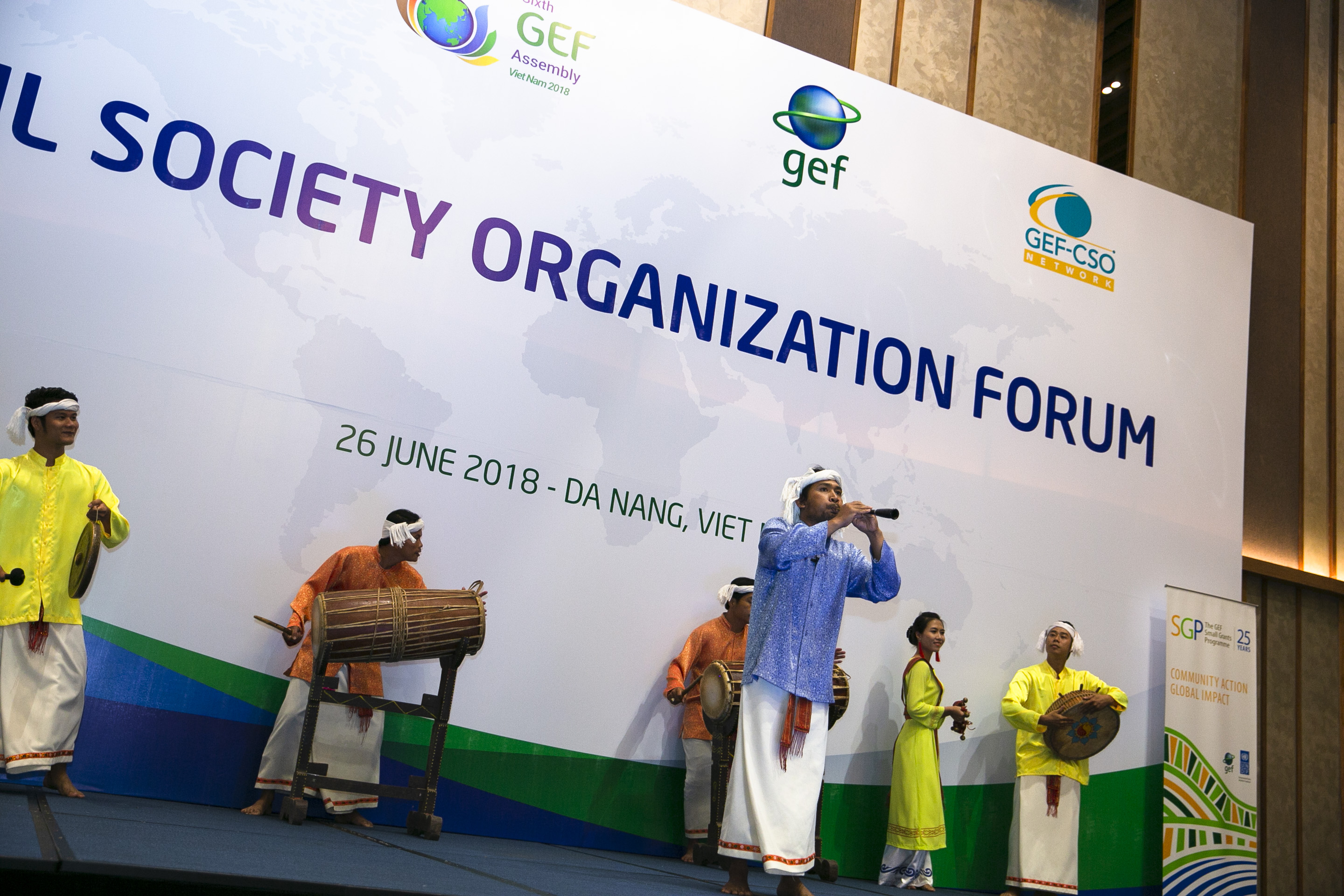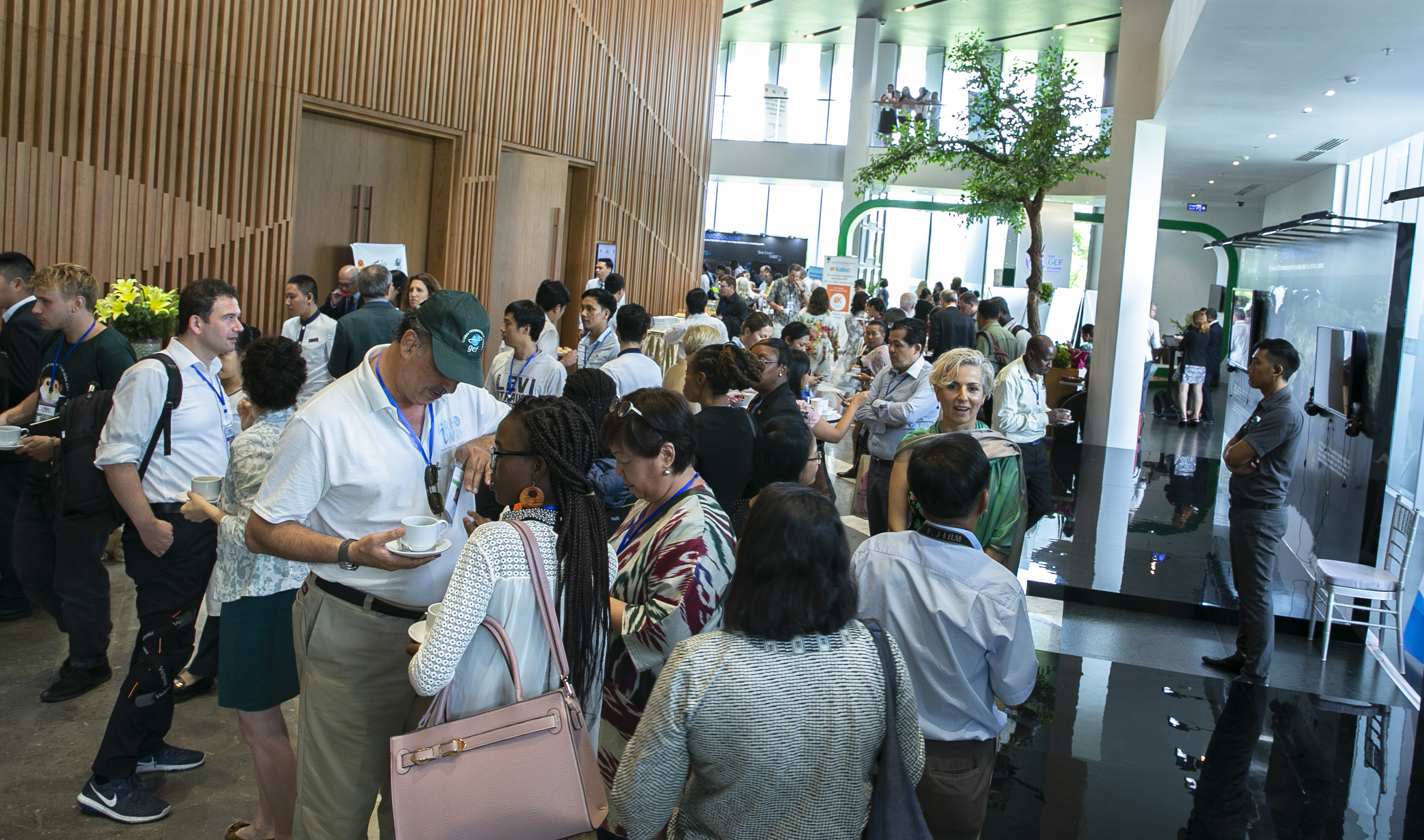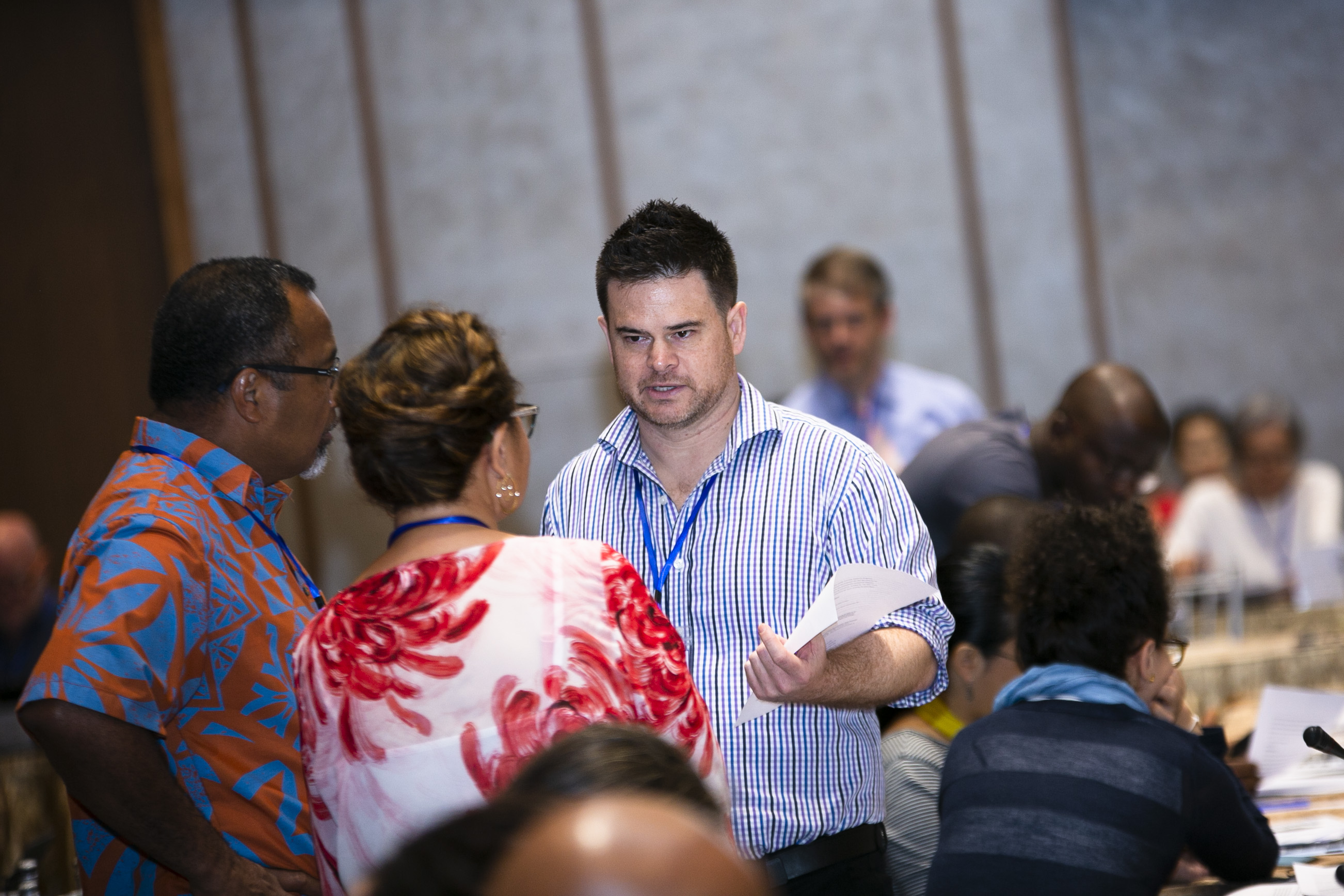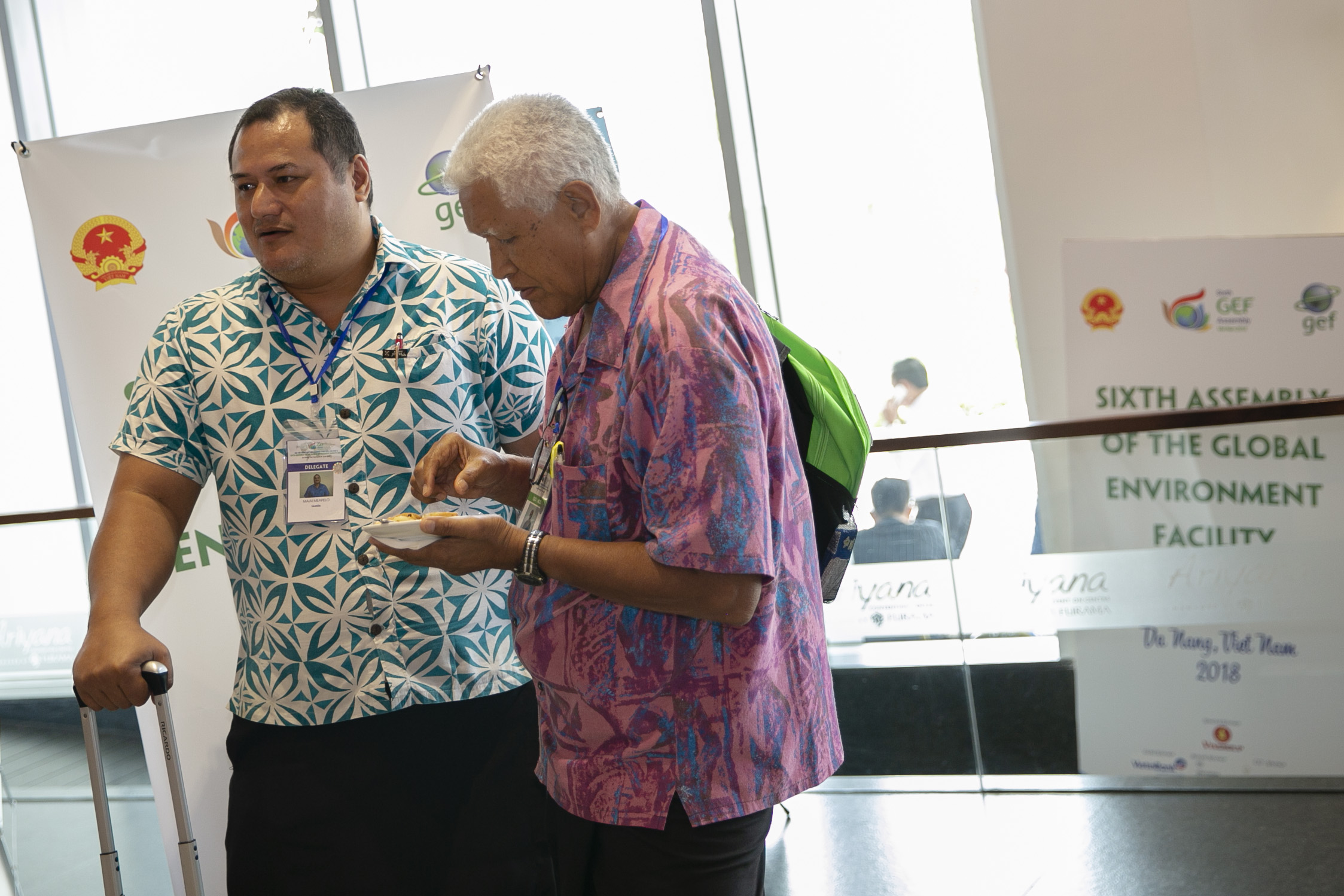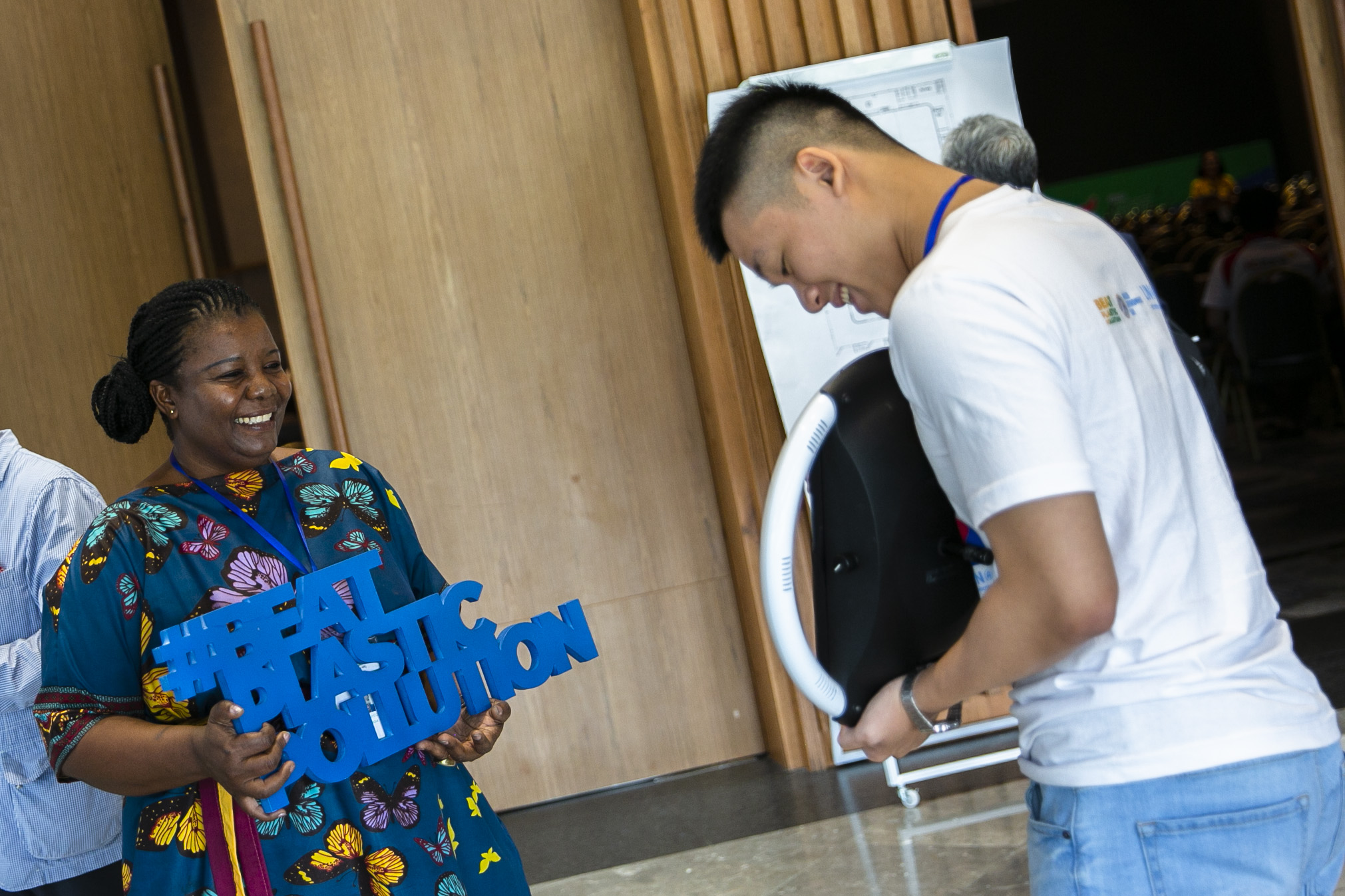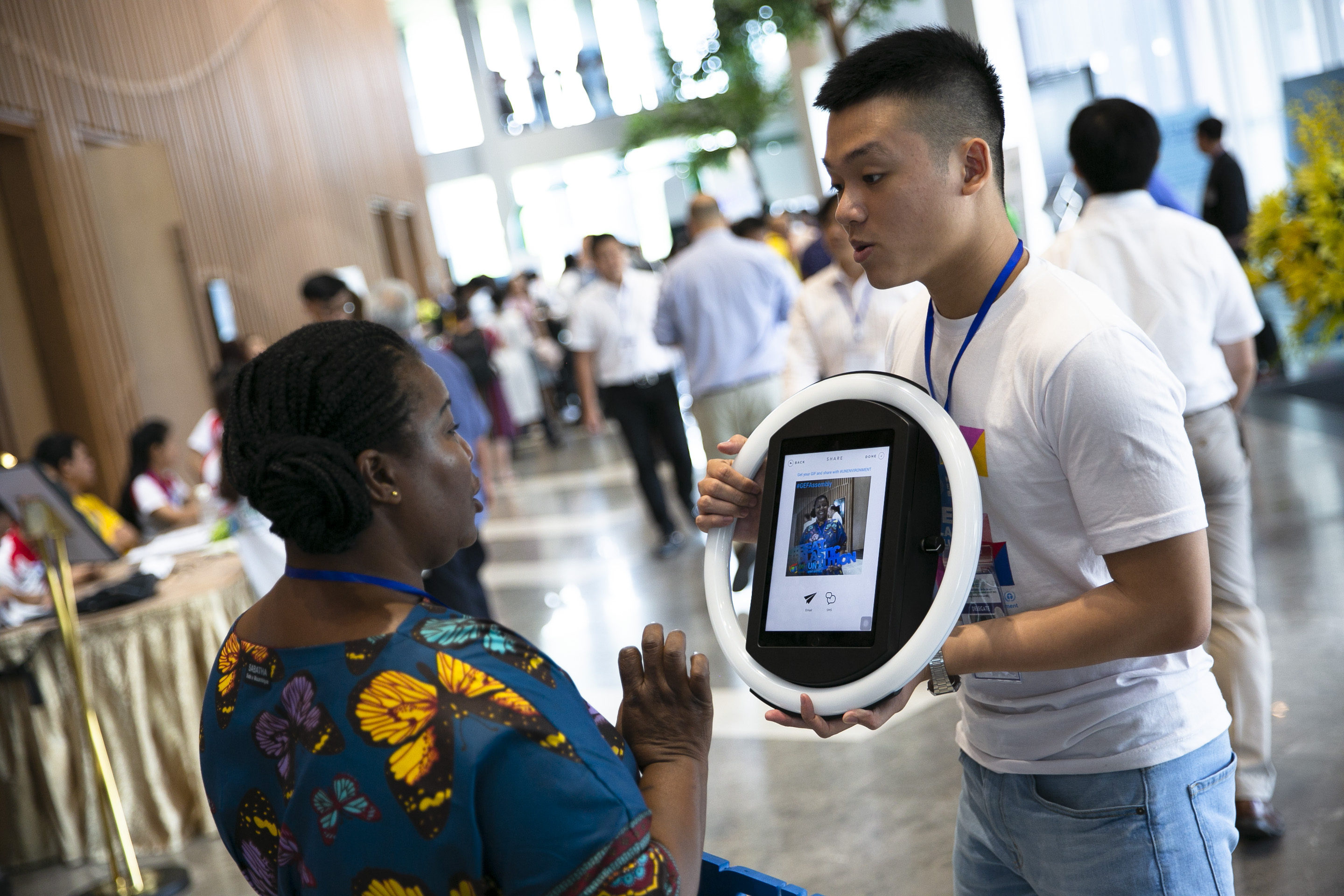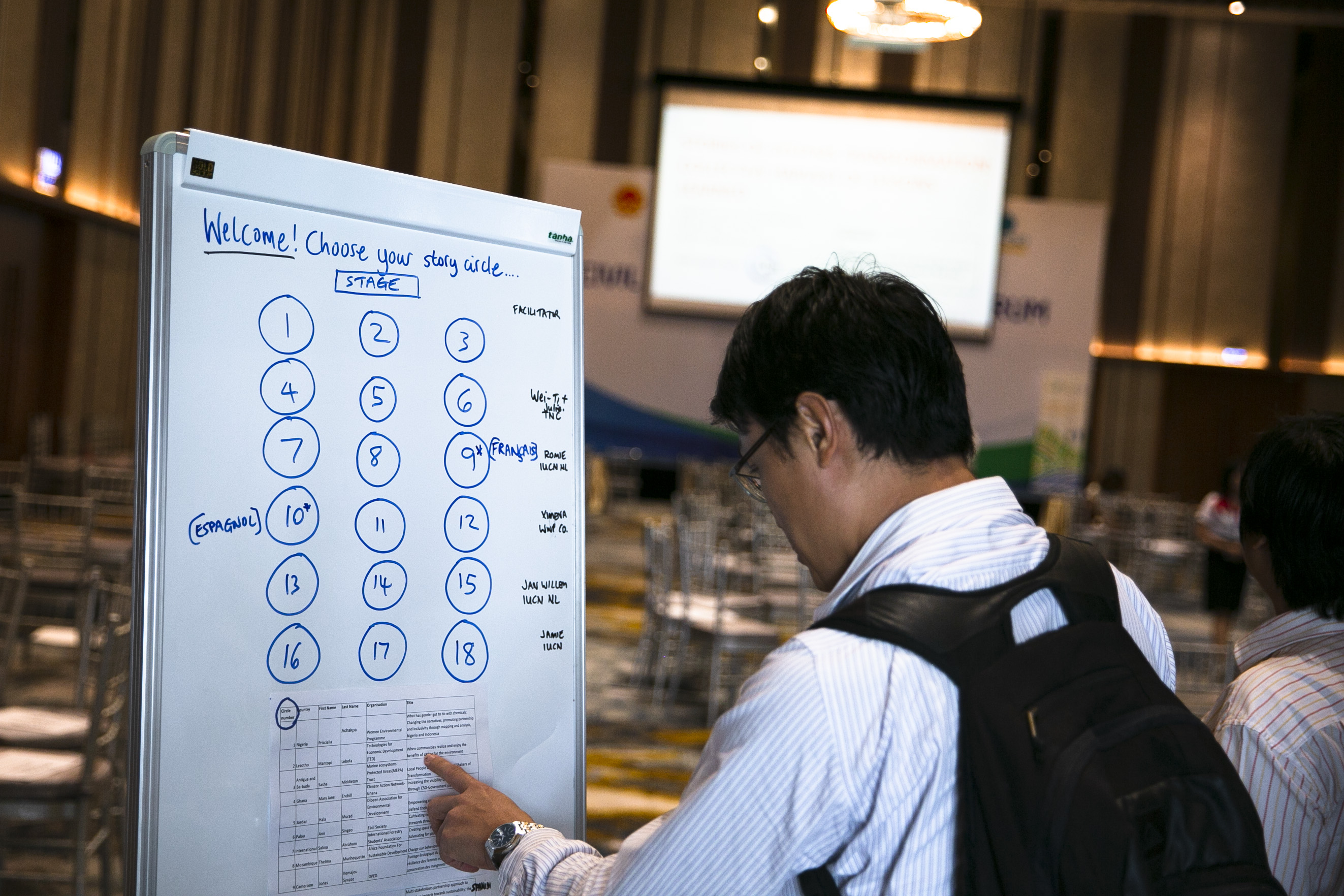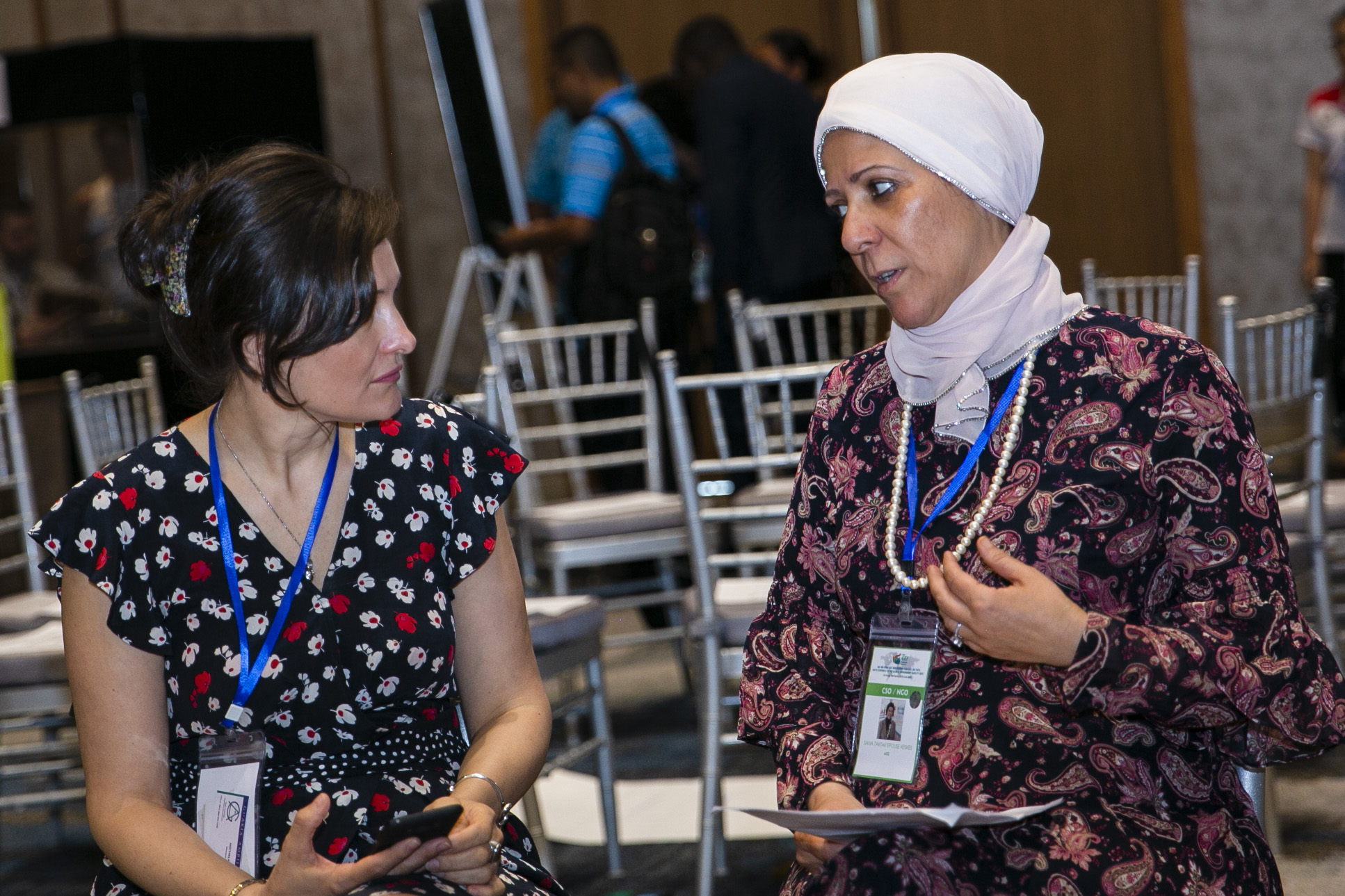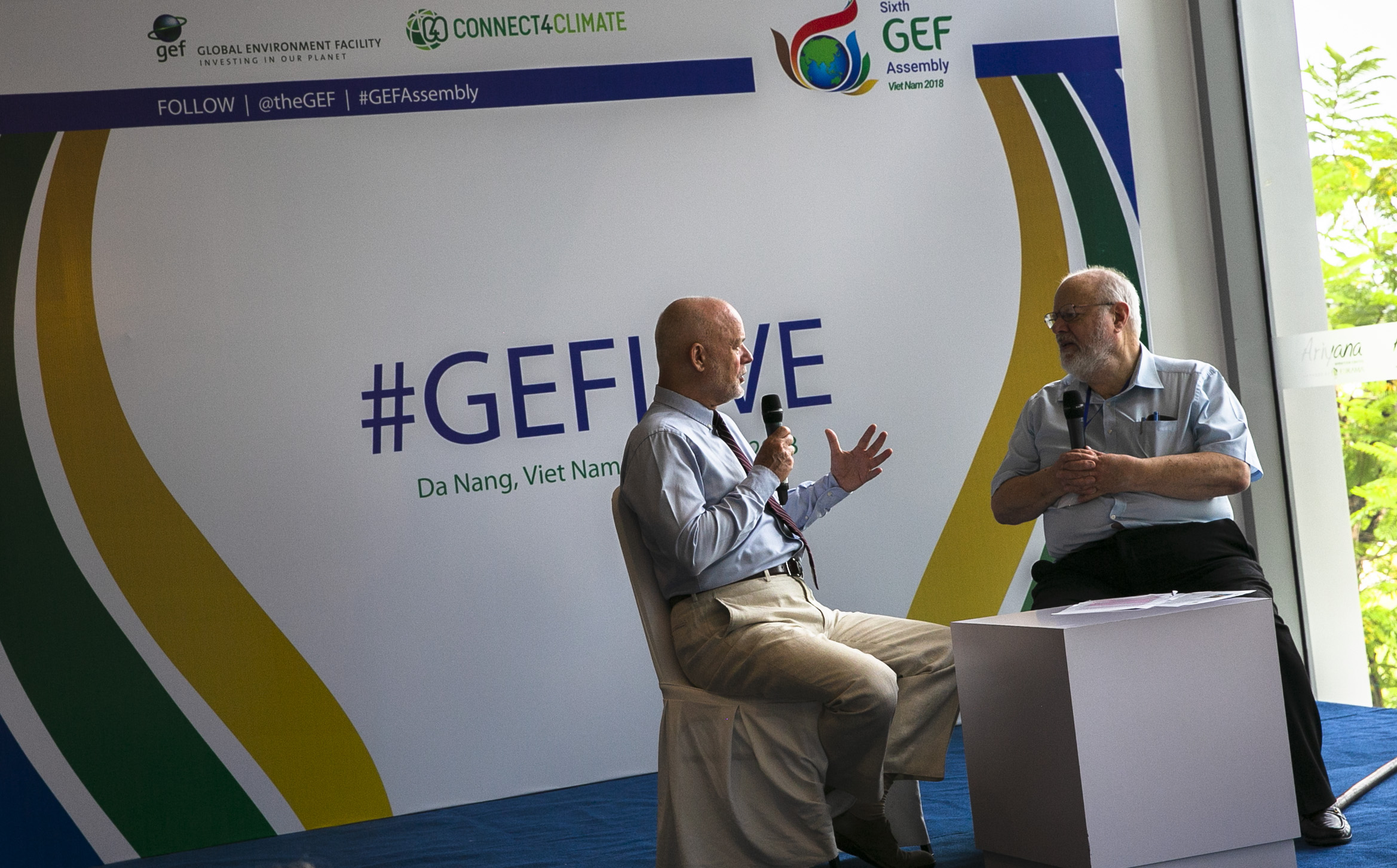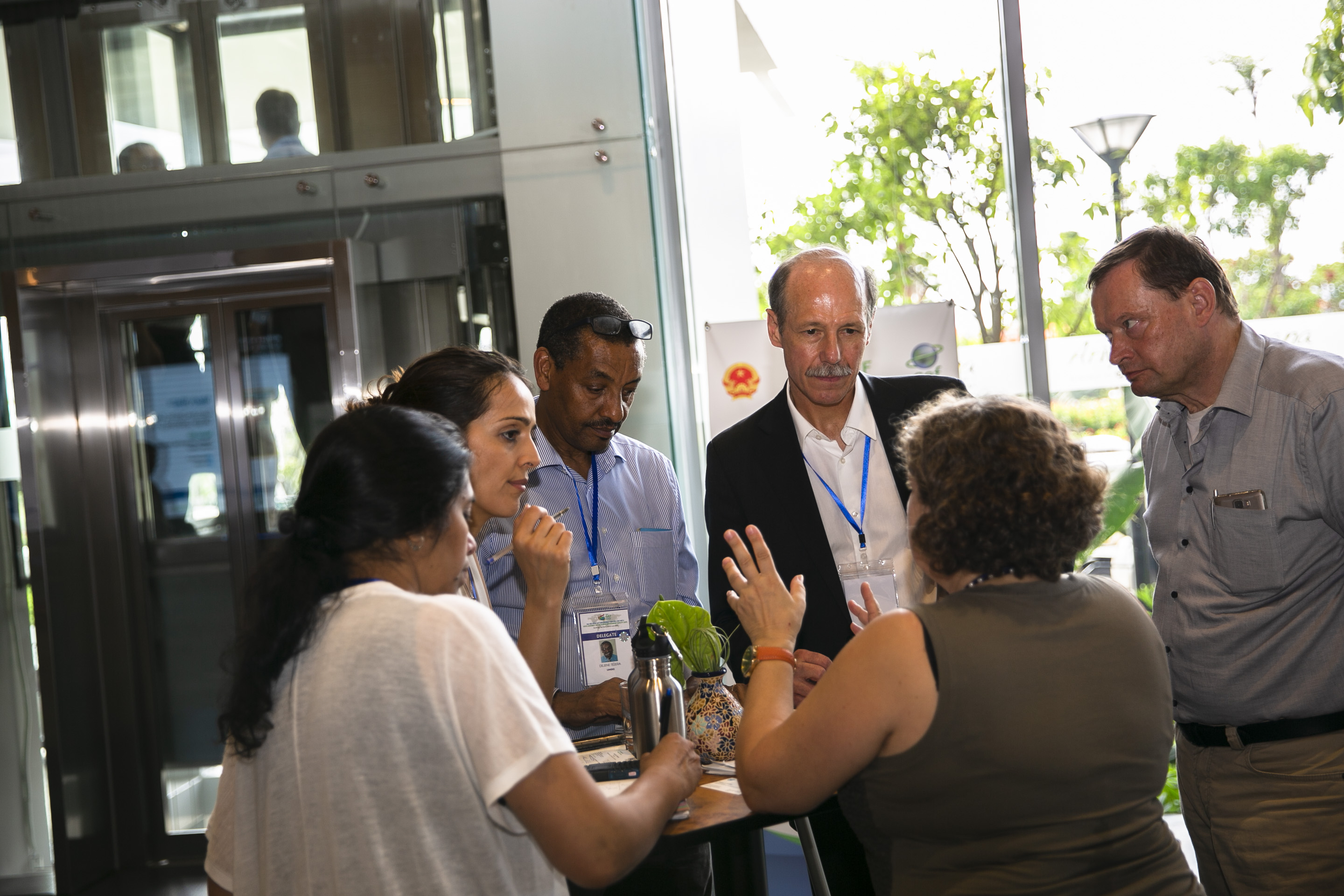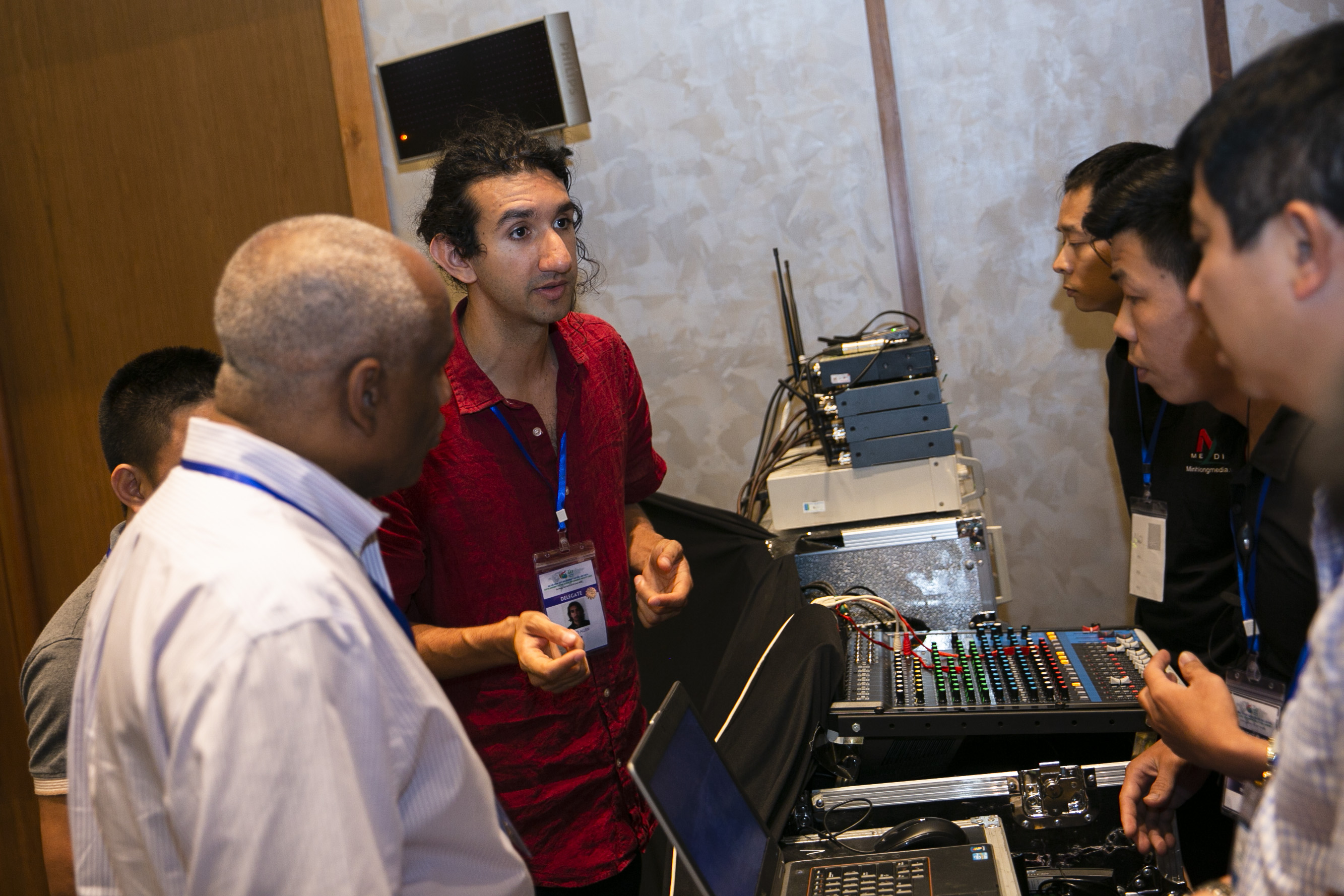Summary
Highlights for Tuesday, 26 June 2018
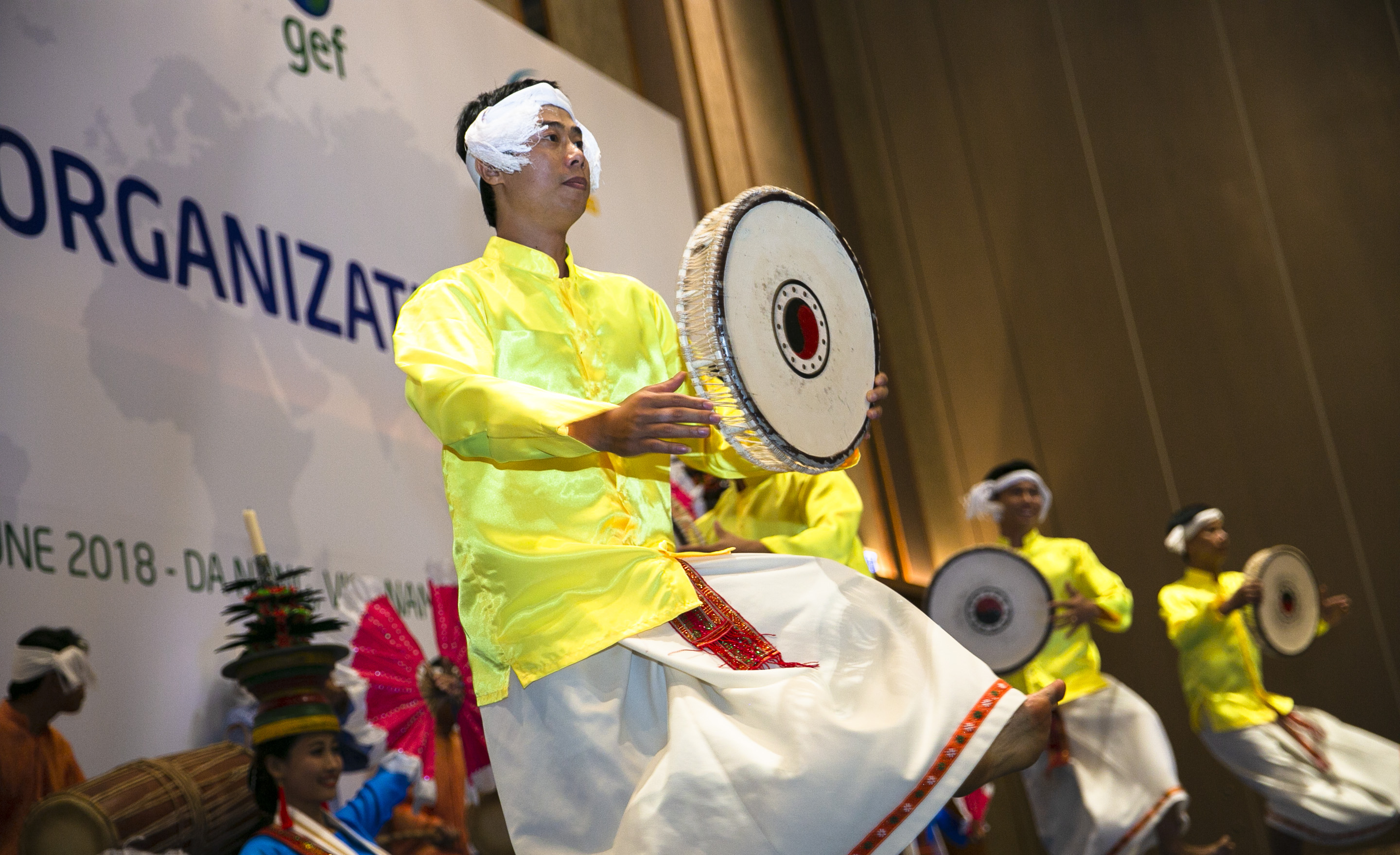
Tuesday, 26 June 2018, marked the last day of the 54th Council of the Global Environment Facility (GEF). The Council finalized outstanding issues, including on the Small Grants Programme and the Country Support Programme, and discussed the dates of future Council meetings.The 24th Council Meeting of the Least Developed Countries Fund (LDCF) / Special Climate Change Fund (SCCF) also convened, after which the GEF Council resumed to approve all decisions, concluding its deliberations at 1:25 pm, with GEF CEO and Chairperson Ishii describing the Council meeting as “historical.”In parallel, the Civil Society Organizations (CSO) Forum met throughout the day, holding plenary discussions, interactive dialogues and breakout sessions. See more here.
IISD Reporting Services, through its ENB+ Meeting Coverage, is providing daily photo and video coverage, and will produce a summary report from the GEF Council Consultation Meeting with CSOs, 54th GEF Council Meeting, 24th Meeting of the LDCF/SCCF Council, and 6th GEF Assembly.
Photos by IISD/ENB | Sean Wu
To use our meeting photos on an external website or printed publication, please adhere to the following regulations:
Online Use:
- Visible Text: Photo by IISD/ENB | Sean Wu
- Hyperlinked to: http://enb.iisd.org/gef/council54-assembly6/
- Resulting in: Photo by IISD/ENB | Sean Wu
Print Use:
- Visible Text (must include visible link for print versions): Photo by IISD/Sean Wu (enb.iisd.org/gef/council54-assembly6/)
The 54th GEF Council Meeting
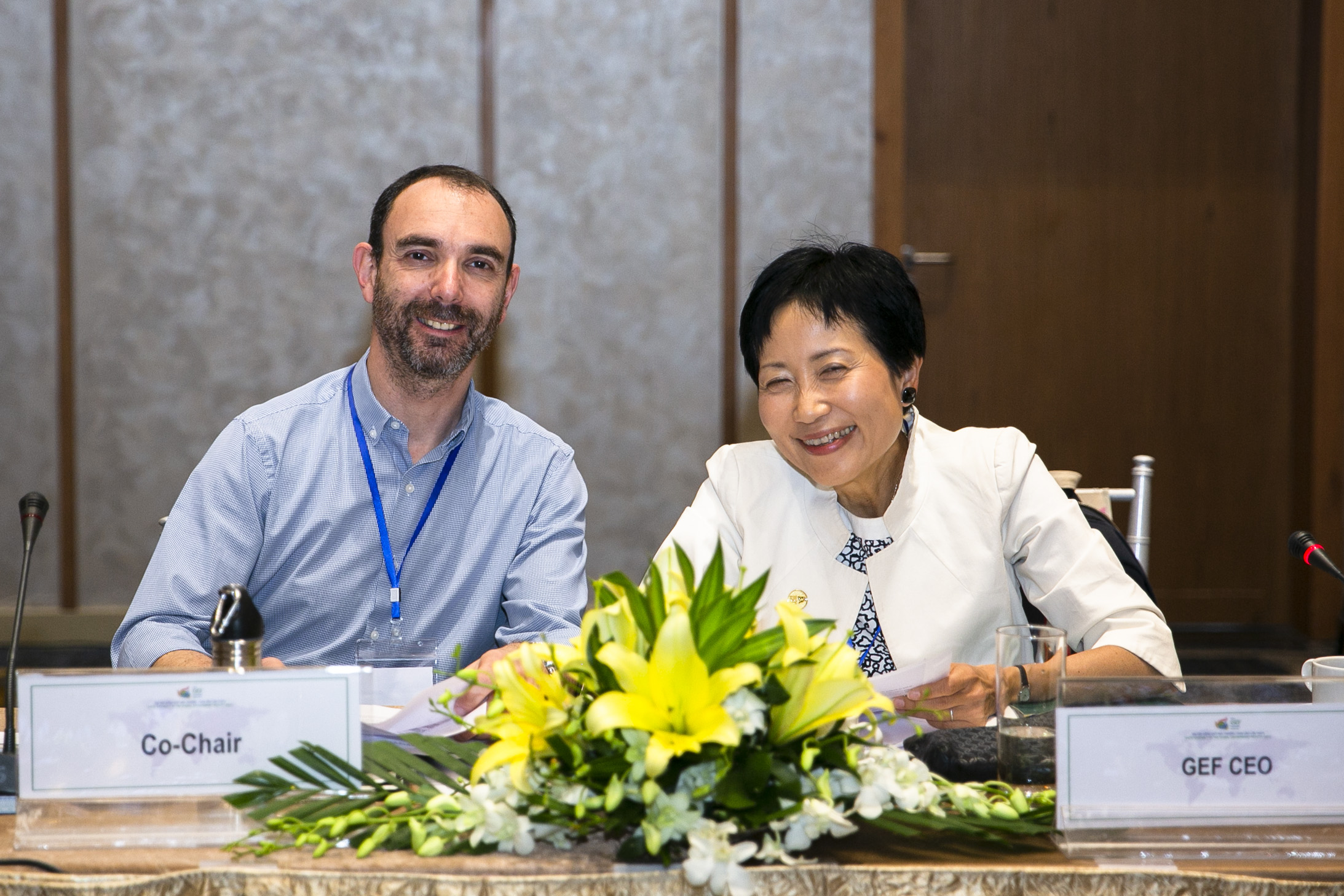
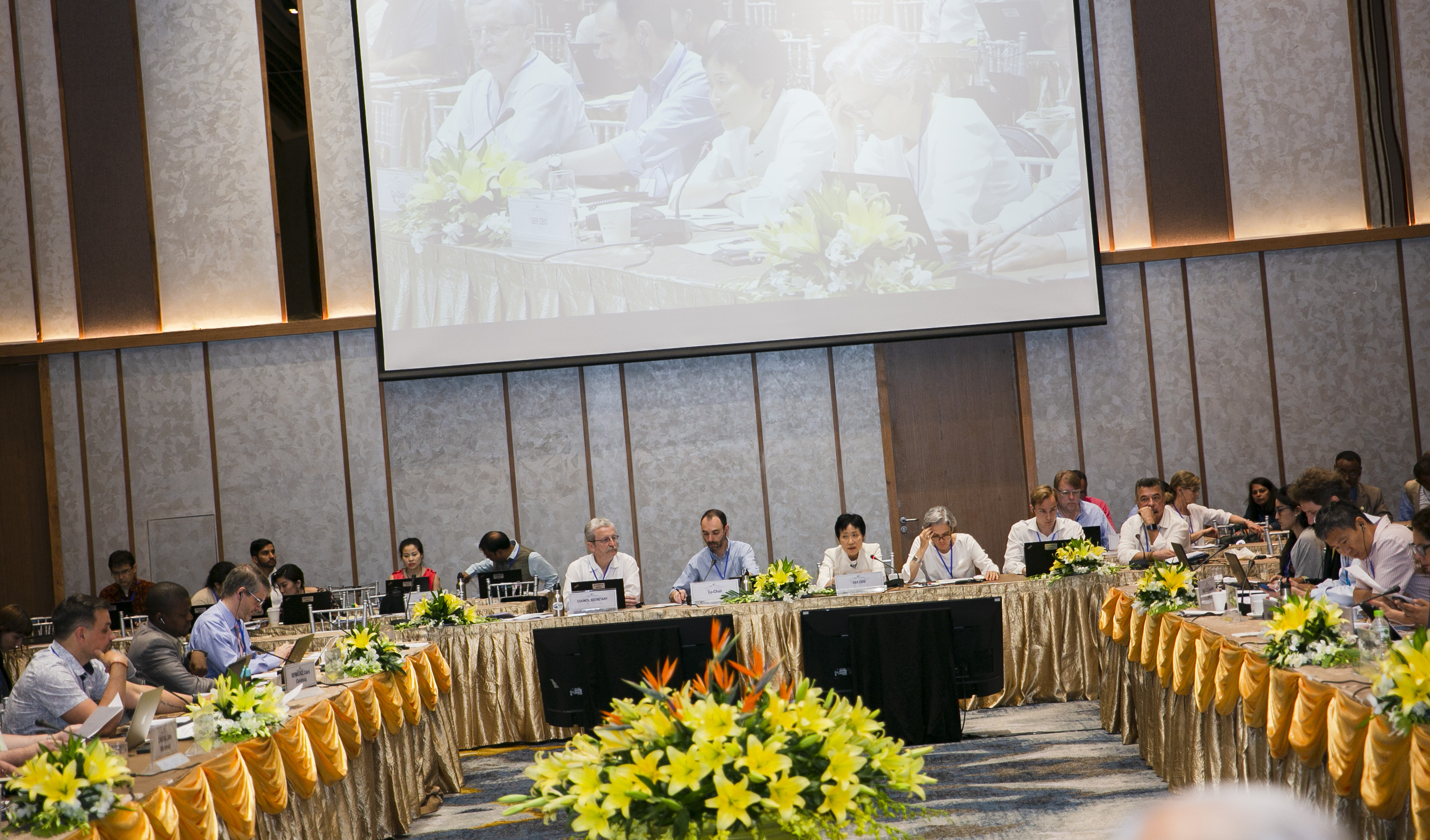
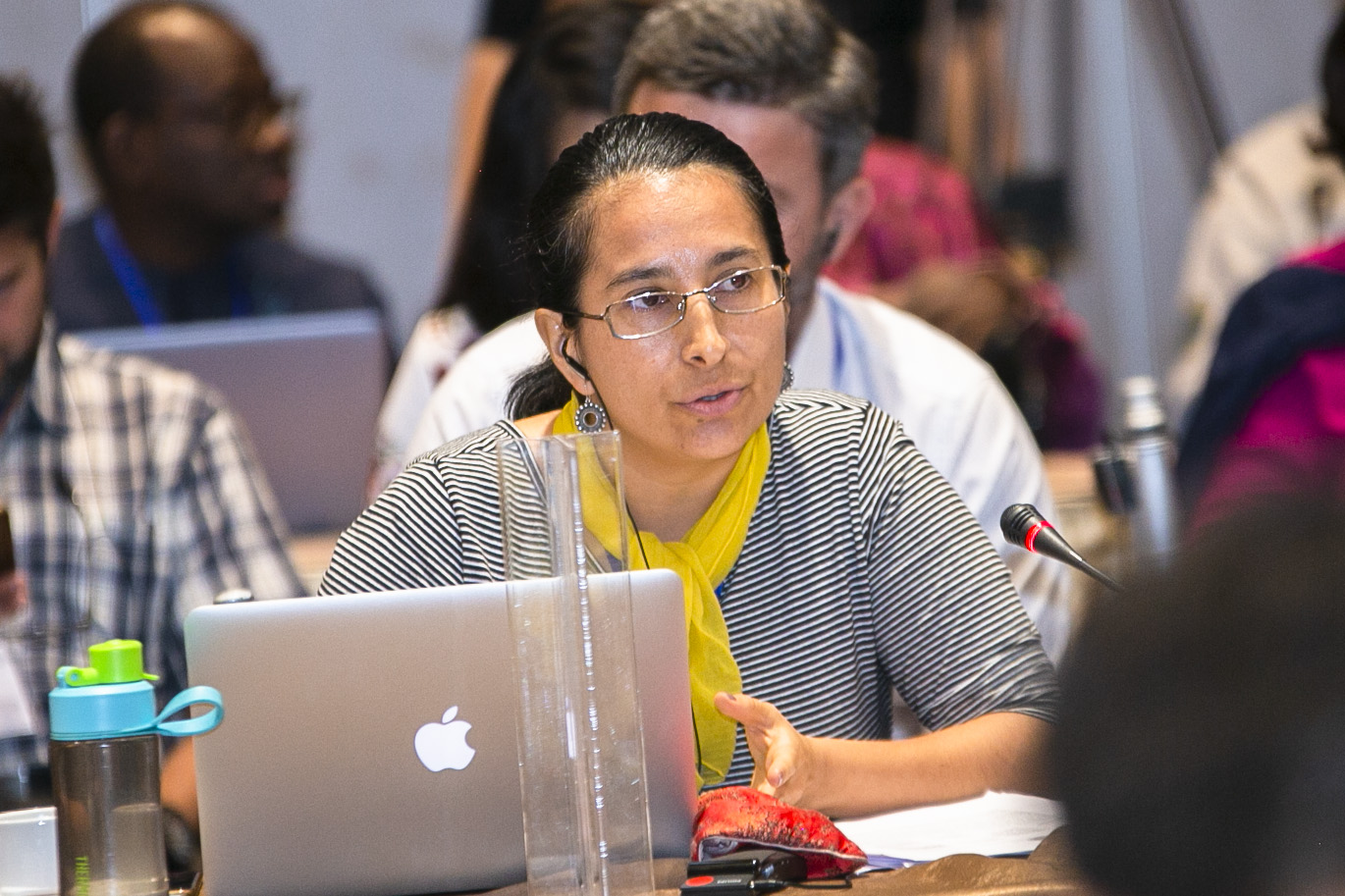

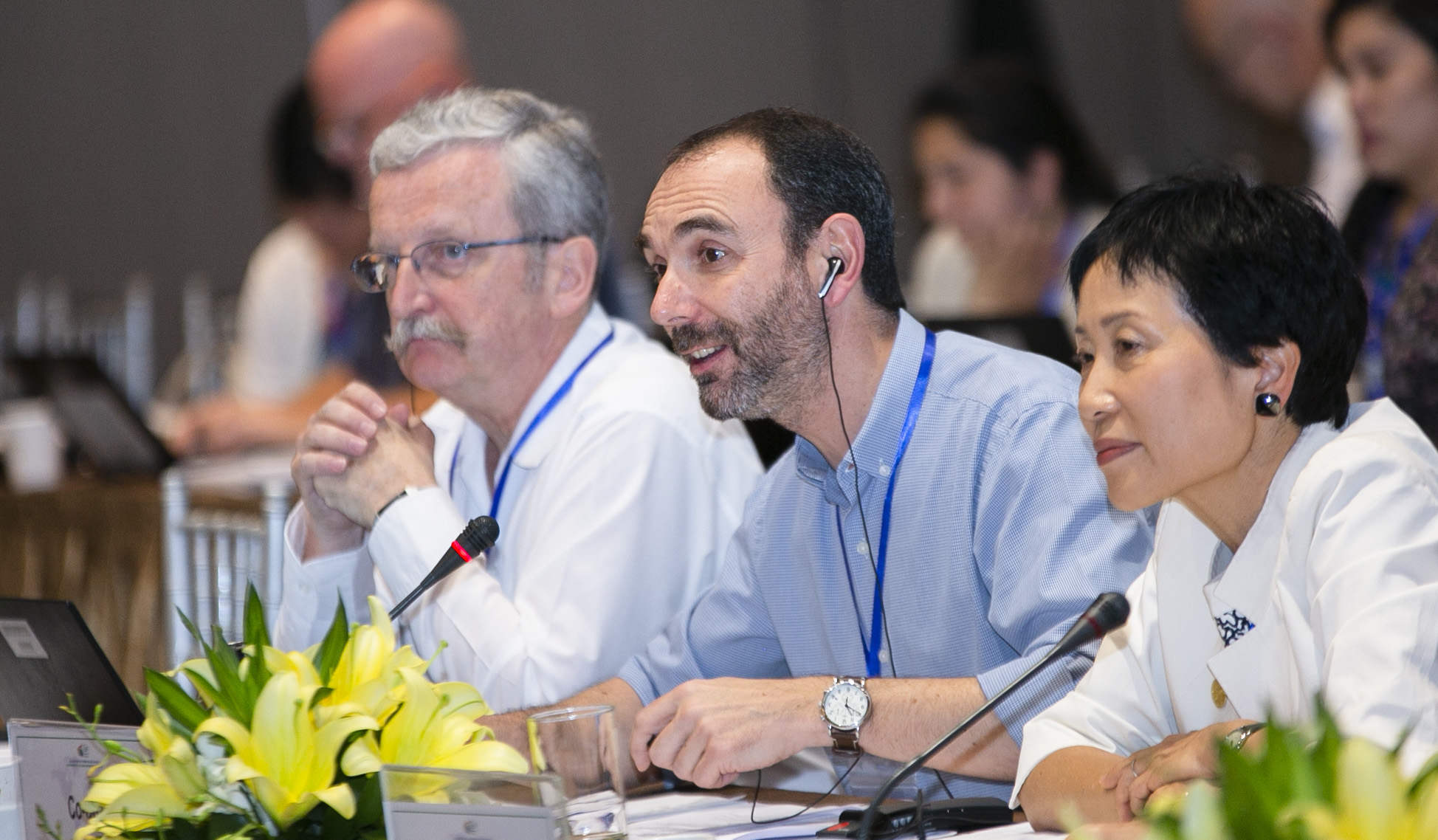
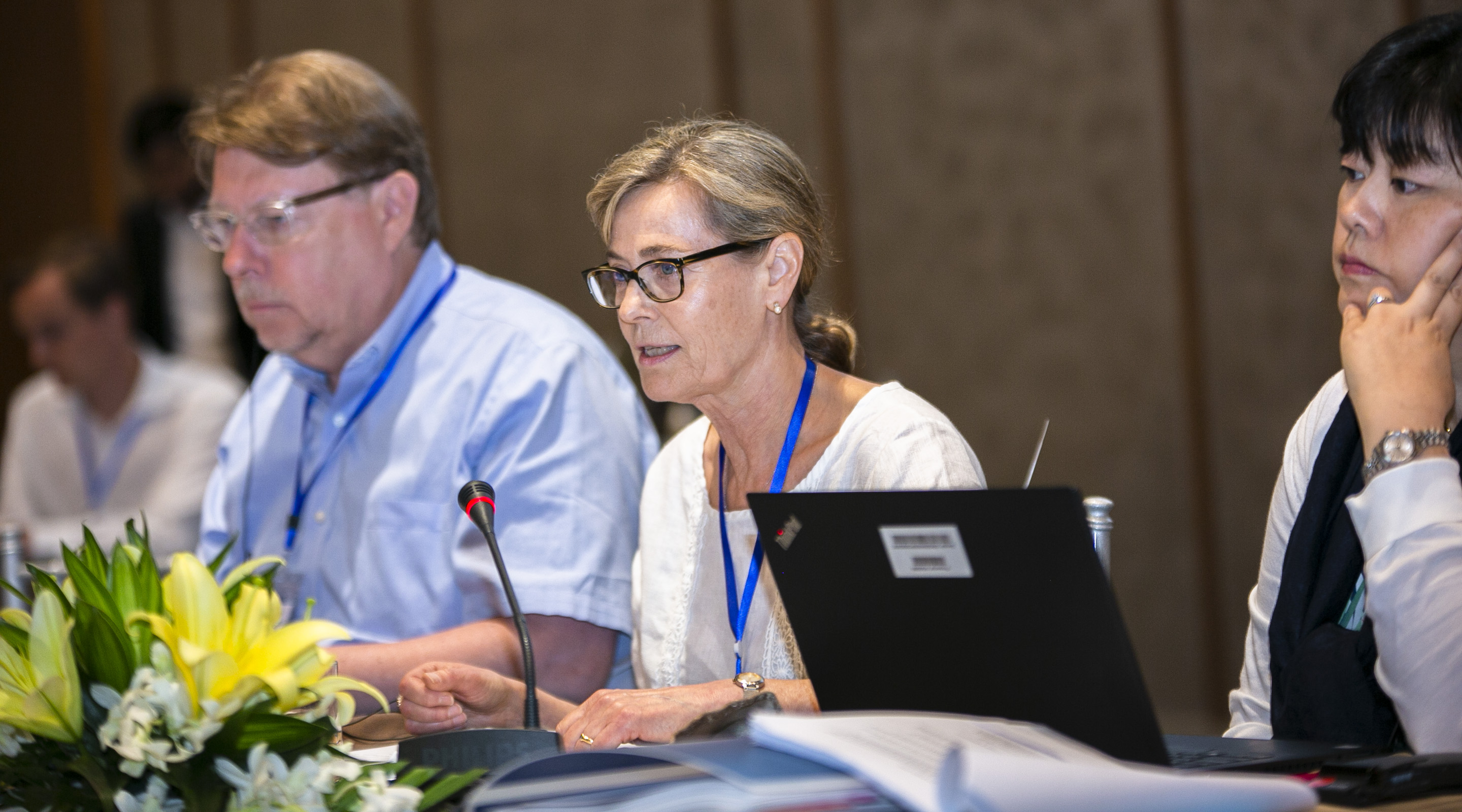
The LDCF/SCCF Meeting
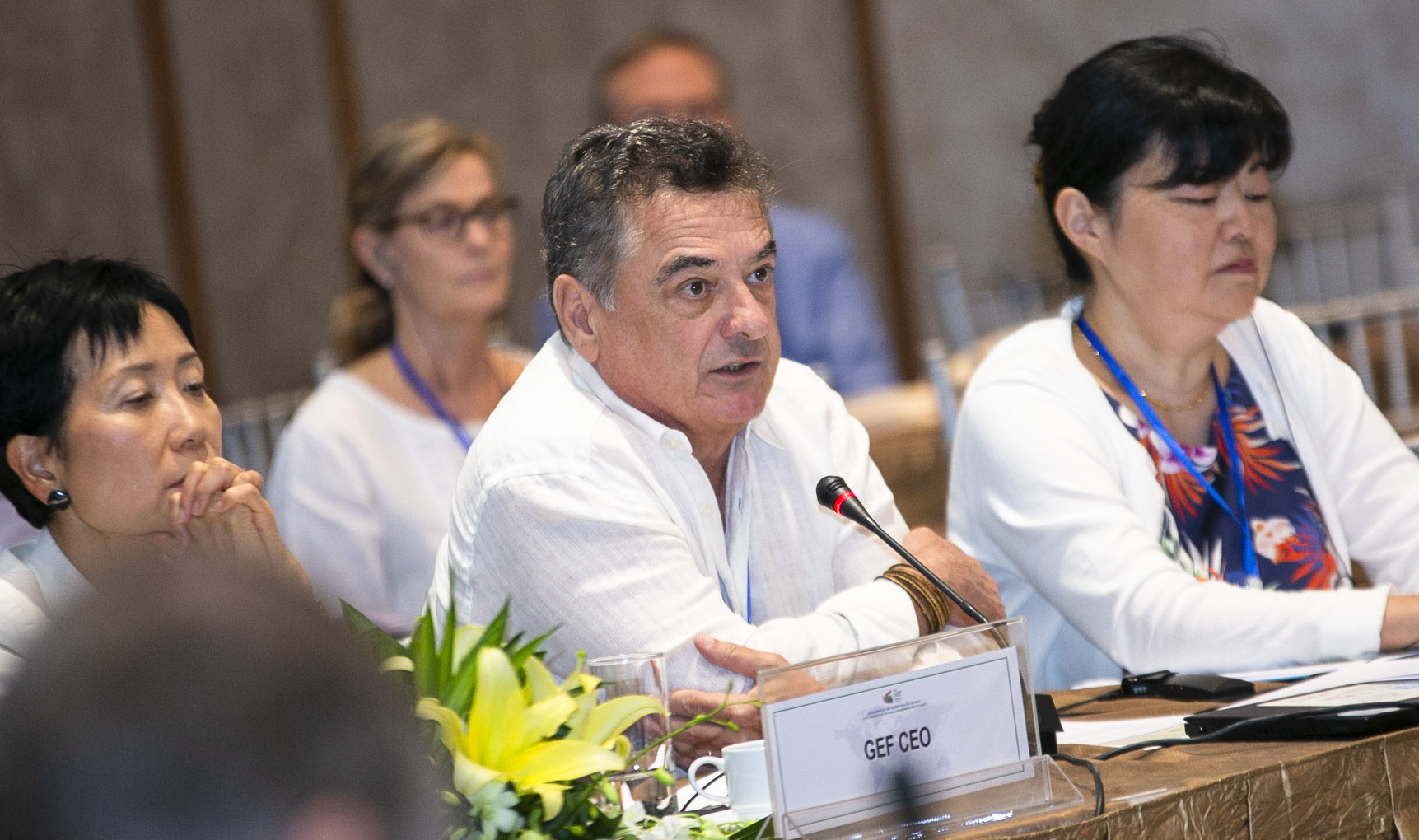
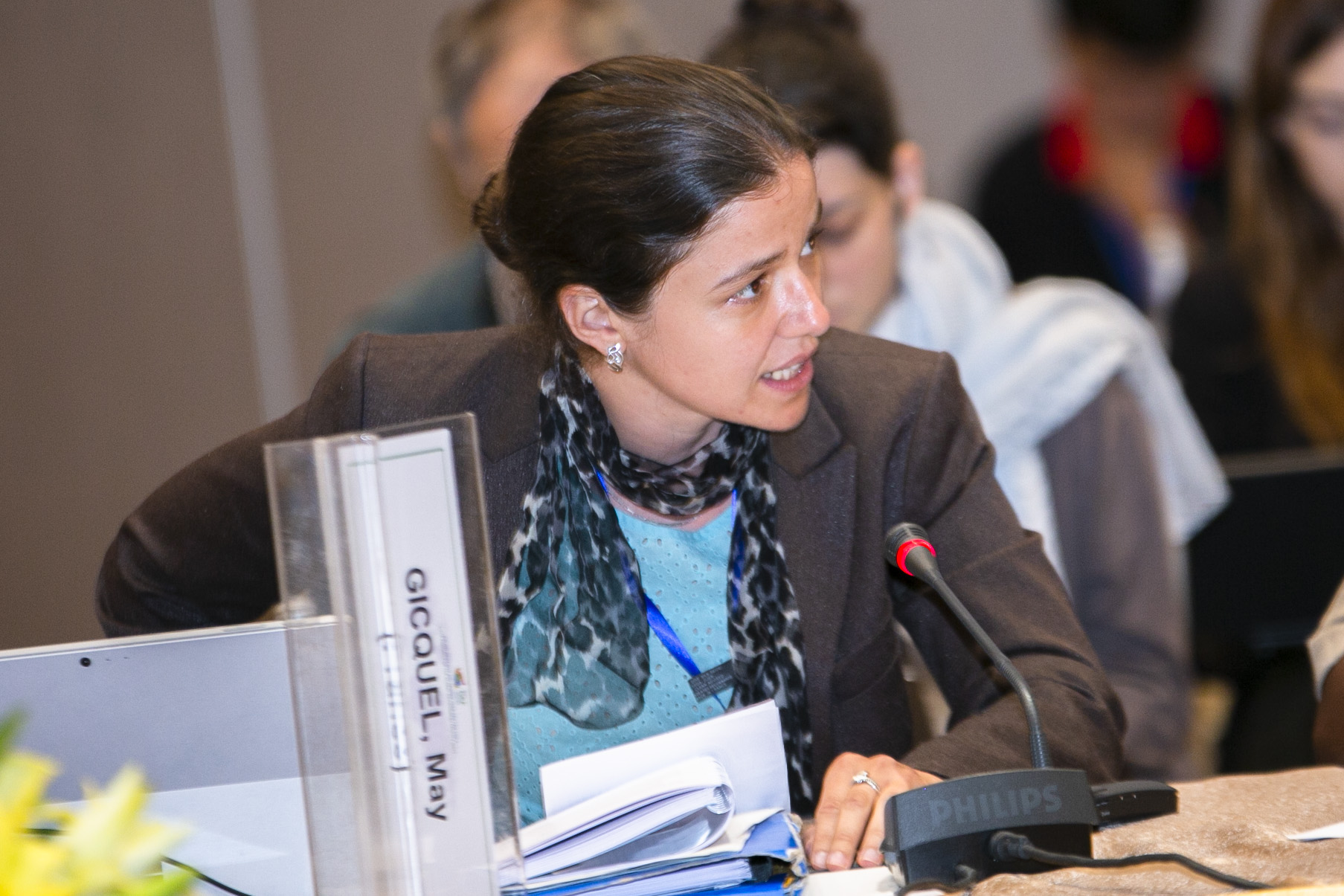
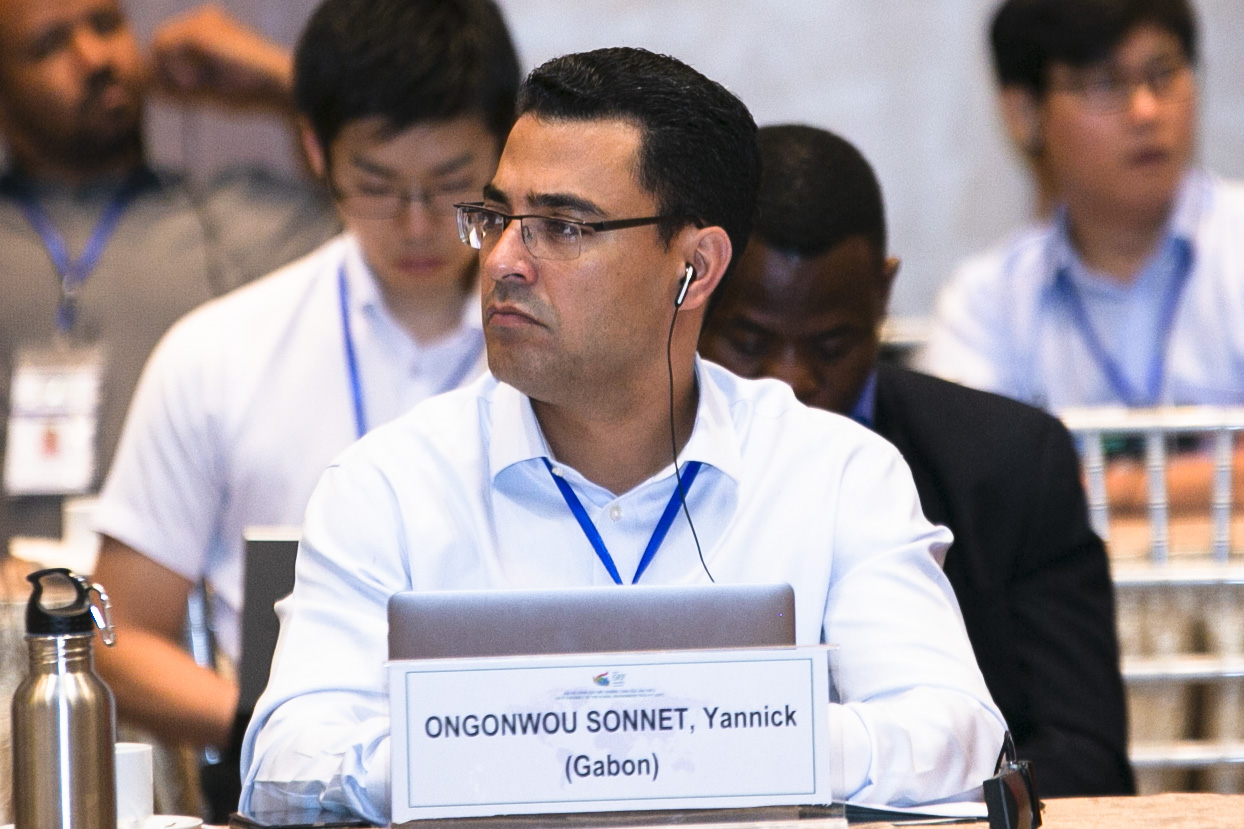
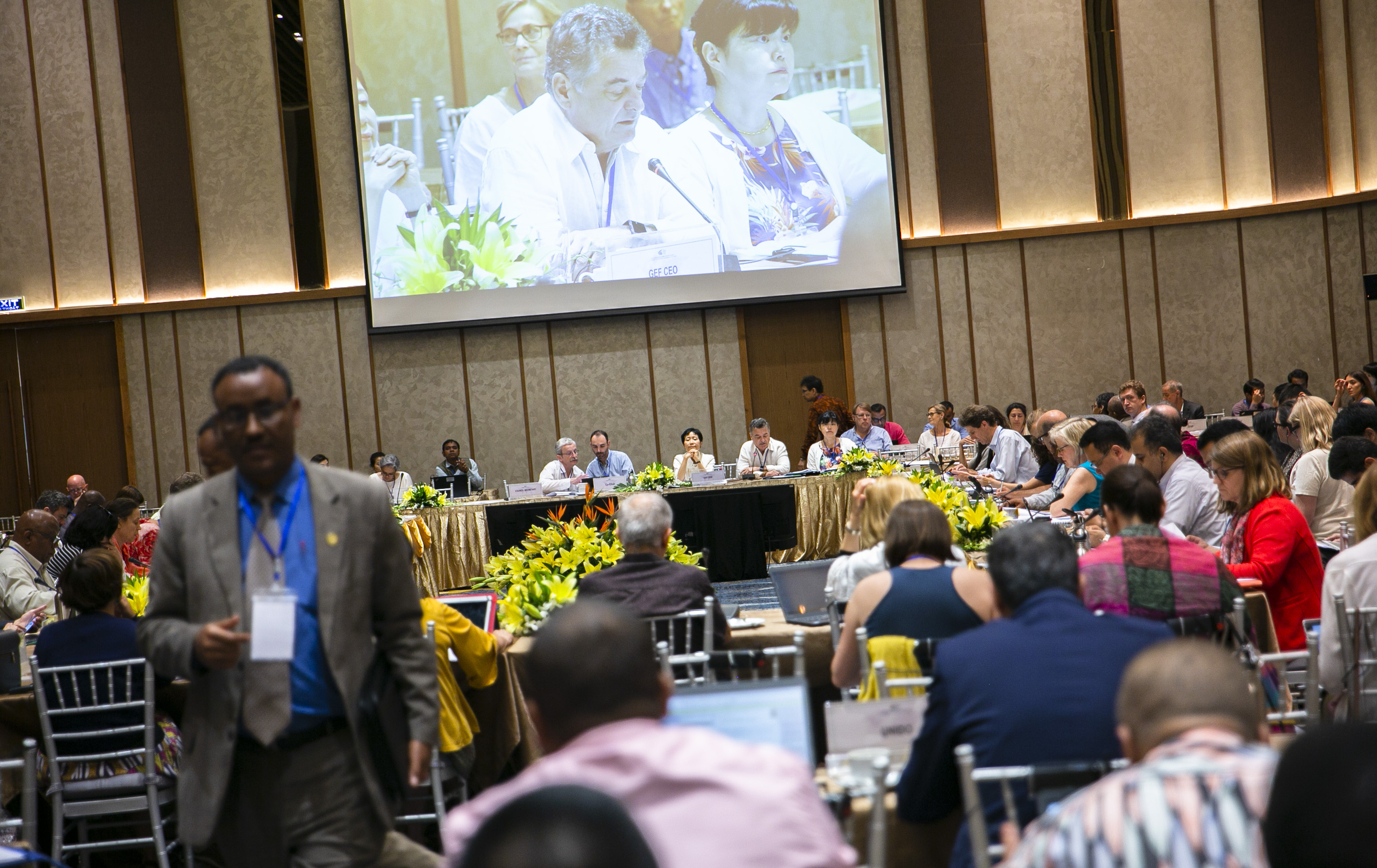
The Civil Society Organizations (CSO) Forum
Opening and Welcoming Remarks
On Tuesday, 26 June, Victor Kawanga, Chair, GEF-CSO Network, noted the GEF-CSO Network is in a period of transition and said receiving funding from GEF for the Network’s operation is the “silver bullet” needed to ensure its continued existence.
Le Cong Thanh, Vice-Minister of Natural Resources and Environment, Viet Nam, said further CSO engagement will be a valuable contribution to the successful delivery of the GEF programme over the next four years and said it is only through “joining hands” that green growth can be achieved.
GEF CEO and Chairperson, Naoko Ishii lauded Viet Nam’s pledge to become a leader in achieving green growth and addressing oceans plastics. She said to transform systems, the power of every sector and group needs to be harnessed.
Noting that Indigenous Peoples comprise 5% of the global population, Lucy Mulunkei, Chair, Indigenous Peoples Advisory Group of the GEF, welcomed the opportunity for continued work with the GEF to ensure that the rights and work of Indigenous Peoples are recognized and respected.
Thu-Huyen Thi Nguyen, National Coordinator, Viet Nam Small Grants Programme (SGP), underlined the SGP’s important work with civil society and local communities on local environmental issues, pointing particularly to innovations at the local level that have been scaled up to the national level.
Participants then witnessed a cultural ceremony from Viet Nam’s Cham ethnic group from the Quang Nam province.
Stories of Systems Transformation: Collective Story Harvesting
Nadine McCormick, IUCN, moderated the session, highlighted the role of story-telling and collective story harvesting in illuminating systems transformations. The session comprised 18 pitches and breakout groups, with participants sharing experiences on GEF-SGP project implementation at the local and national levels.
Priscilla Achakpa, Women Environmental Programme, Nigeria, spoke on the role of women in awareness raising on the risks posed by persistent organic pollutants (POPs) to human health and the environment. Mantopi Lebofa, Technologies for Economic Development, Lesotho, stressed that 70% of the country relies on biomass for energy needs, but that this is detrimental to the environment, and highlighted that the GEF has helped transform local communities through partnering with governments to provide clean cookstoves.
Sana Taktak Keskes, Association of Continuity of Generations, Tunisia, highlighted her organisation's work in empowering women in environmental conservation and preservation in the clam sector, and noted that the government had recognized the organization's work. Sasha Middleton, Marine Ecosystems Protected Areas Trust, Antigua and Barbuda, noted that local people are the movers and shakers of transformation, and highlighted the GEF’s role in ensuring that information is shared with the people to promote effective decision making.
Sophiko Akhobadze, Regional Environmental Center for the South Caucasus, Georgia, spoke on changing the mindsets of communities about land degradation, climate change and drought in the country. Mary Jane Enchill, Climate Action Network, Ghana, said through funding from the SGP they engaged in projects to engage CSOs and the private sector to increase their knowledge about the GEF as well as their engagement in the implementation of GEF-7.
Ann Singeo, Ebiil Society, Palau, said her organization has supported women to take greater responsibility for forest protection and management and men to protect the ocean and together bring awareness and education to children. Thelma Munhequette, Africa Foundation for Sustainable Development, Mozambique, said, with respect to chemicals, it is necessary to change behavior so as not to “kill ourselves” and outlined efforts to increase knowledge about the safe use of chemicals.
Hala Murad, Dibeen Association for Environmental Development, Jordan, outlined work to create a coalition to save and protect forests which, experienced challenges with international partner organisations. Salina Abraham, International Forestry Students’ Association, outlined efforts to challenge and change capital markets and decision-making processes through involving youth.
Wuying Lin, Guangxi Biodiversity Research and Conservation Association, China, said his organization has made efforts to conserve nature in the biodiverse region of Guangxi through trusting and empowering communities. Obadiah Ngigi, GreenFi, Kenya, said they had made finance accessible to environmentally vulnerable communities of farmers and fishermen through providing well designed green credit.
Trang Le Thi, GreenViet, Viet Nam, described a project to preserve biodiversity through having a monkey the icon for the local people and empowering them towards environmental stewardship. Tommy Garnett, Environmental Foundation for Africa, Sierra Leone, presented a case on the protection of a wildlife sanctuary with the highest diversity of primates in the world from poaching, which resulted in the creation of a well-known research and ecotourism destination through partnerships with local communities.
Clarence Carver Bacchus, Sustainable Living T&T, Trinidad and Tobago, said that although environmental information sharing has been seen as a “boring” activity, his organization, in partnership with the GEF, has been using film as a medium to share civil society stories in their work on environmental conservation. Michela Izzo, Guakia Ambiente, Dominican Republic, presented on a GEF-SGP project in partnership with the local community to improve environmental protection policies at national and regional levels.
Jonas Kemajou Syapze, Organisation for Environment and Sustainable Development, Cameroon, shared a GEF-SGP project to improve human health in the environment with a focus on women in the smoked fish sector. Liliana Sin, NGO Krass, Uzbekistan, spoke on a GEF-SGP project on renewable energy and energy efficiency, which has been key to local community empowerment.
Closing Session
Plenary reconvened after four break-out sessions on effective collaborations for systems change, the power of advocacy and innovative environmental action, operationalizing GEF stakeholder engagement, and effective collaborations for sustainable transformation.
Moderated by Lalit Mohan, Regional Focal Point for South Asia, GEF-CSO Network, the CSO Forum fine-tuned the Civil Society Call for Action through recommendations from the breakout session moderators, with the Call to Action to be presented to the 6th GEF Assembly.
The moderator for the session on effective collaboration for systems change, Zaheer Fakir, Head of the International Governance and Relations Division, Department of Environmental Affairs, South Africa, said that CSOs and governments need to create an enabling environment for the voices of communities to be heard.
Yeshing Juliana Upún Yos, Coordinator, Sotz’il, presented key recommendations including on: the need to ensure the mainstreaming of sustainable development into all GEF projects; mainstreaming CSOs into all GEF projects at national levels; and ensuring ecological footprint analysis are conducted at all levels.
Jimmiel Mandima, Director for Program Design and Partner Relations, African Wildlife Foundation, emphasized the need to allocate commensurate resources for capacity building and to make free prior and informed consent mandatory to ensure environmental safeguards.
Akhteruzzaman Sano, Vice Chair GEF-CSO Network, proposed that before each regional CSO workshop there should be organized a half-day capacity building workshop to teach participants to train CSOs in their countries.
Mohan welcomed further inputs on the Civil Society Call for Action document and said these inputs, along with inputs gathered from hundreds of CSOs over the last four months, will inform the final document.
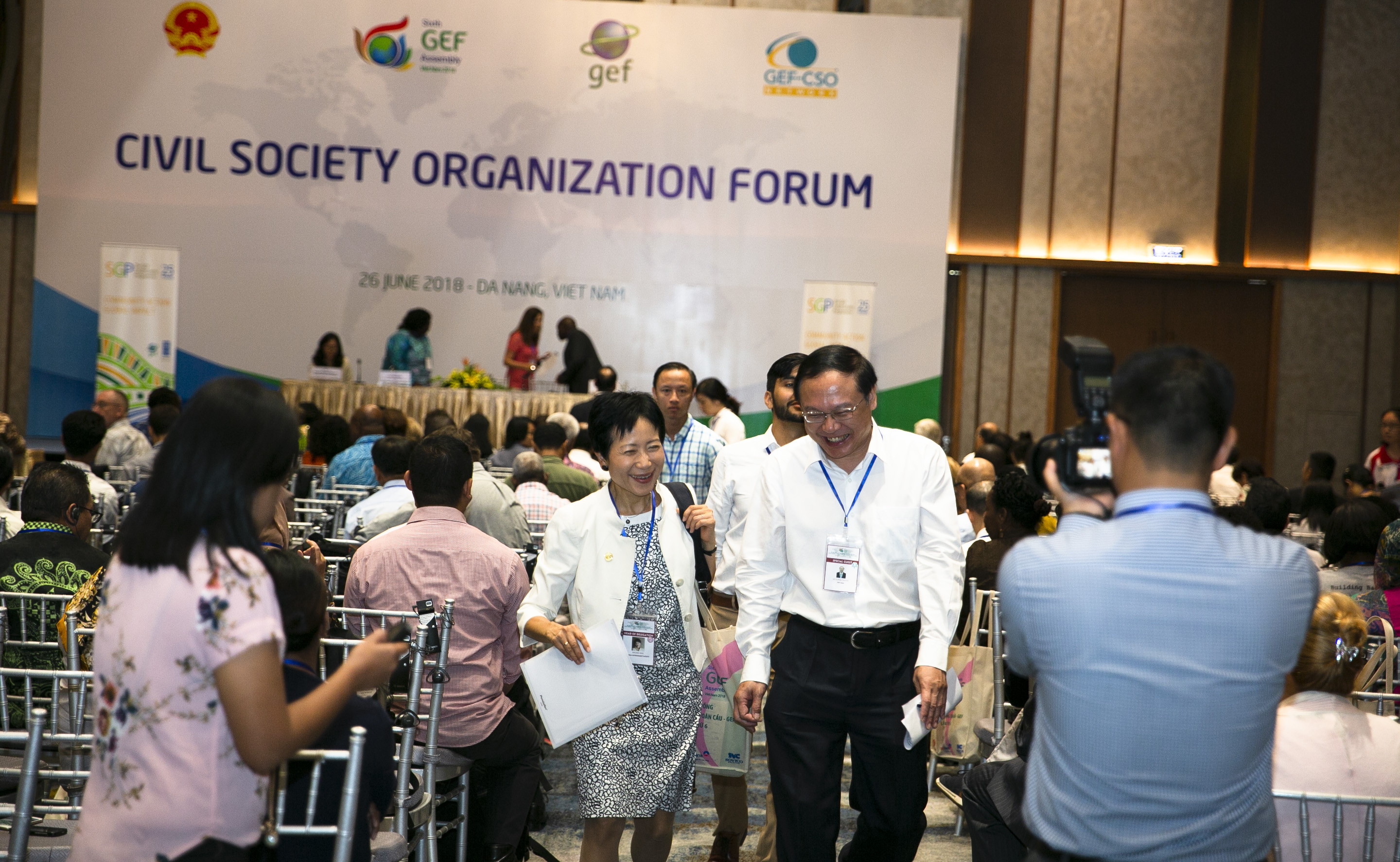
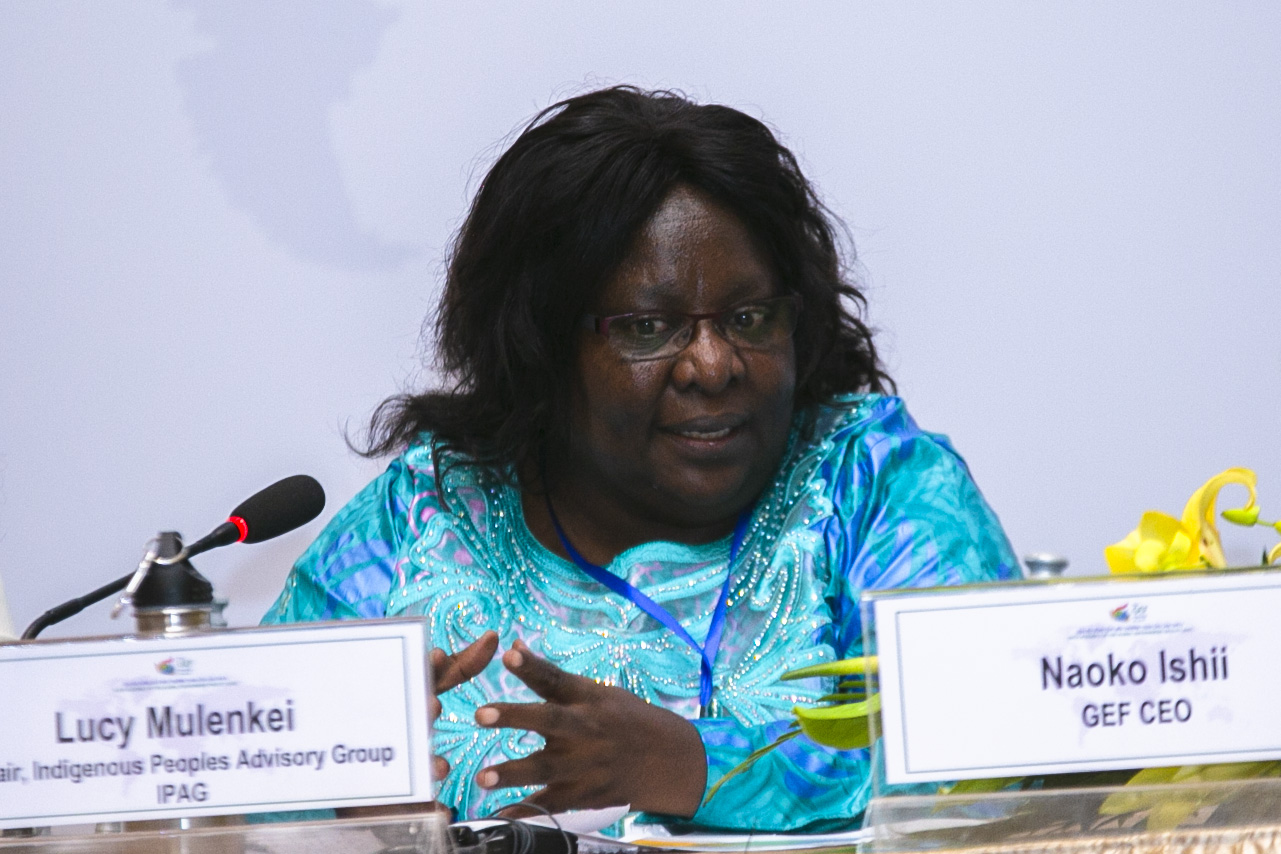

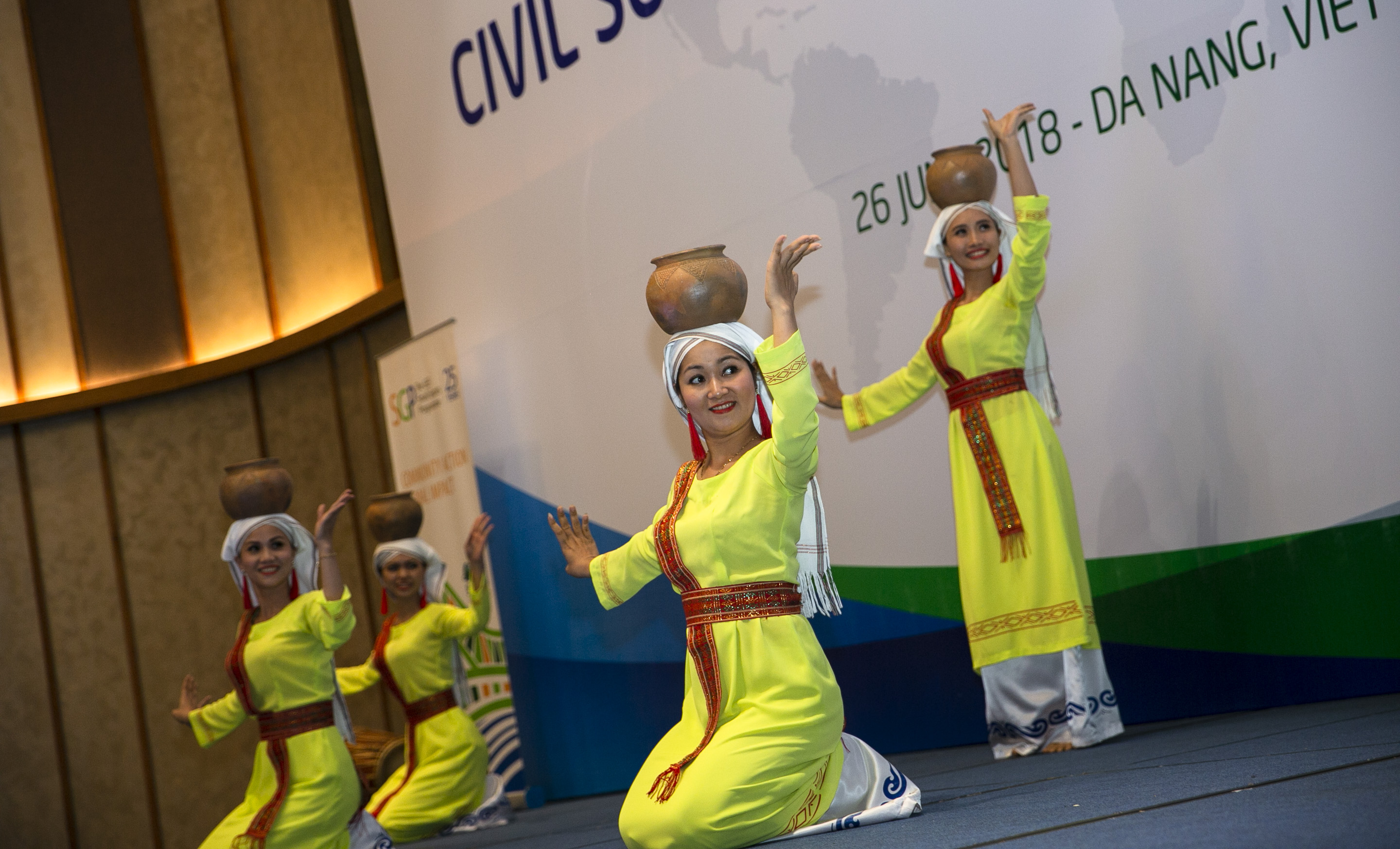
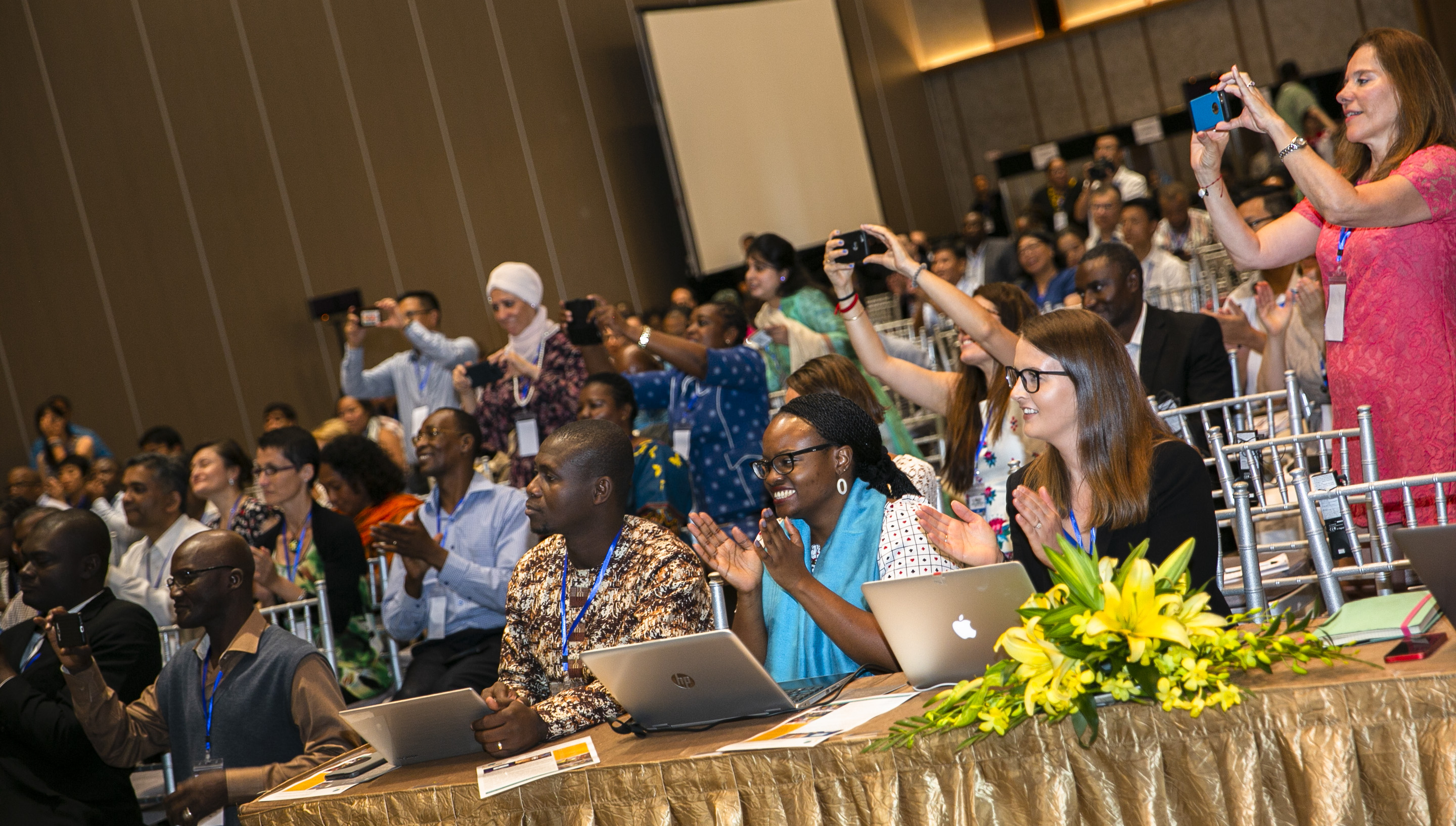
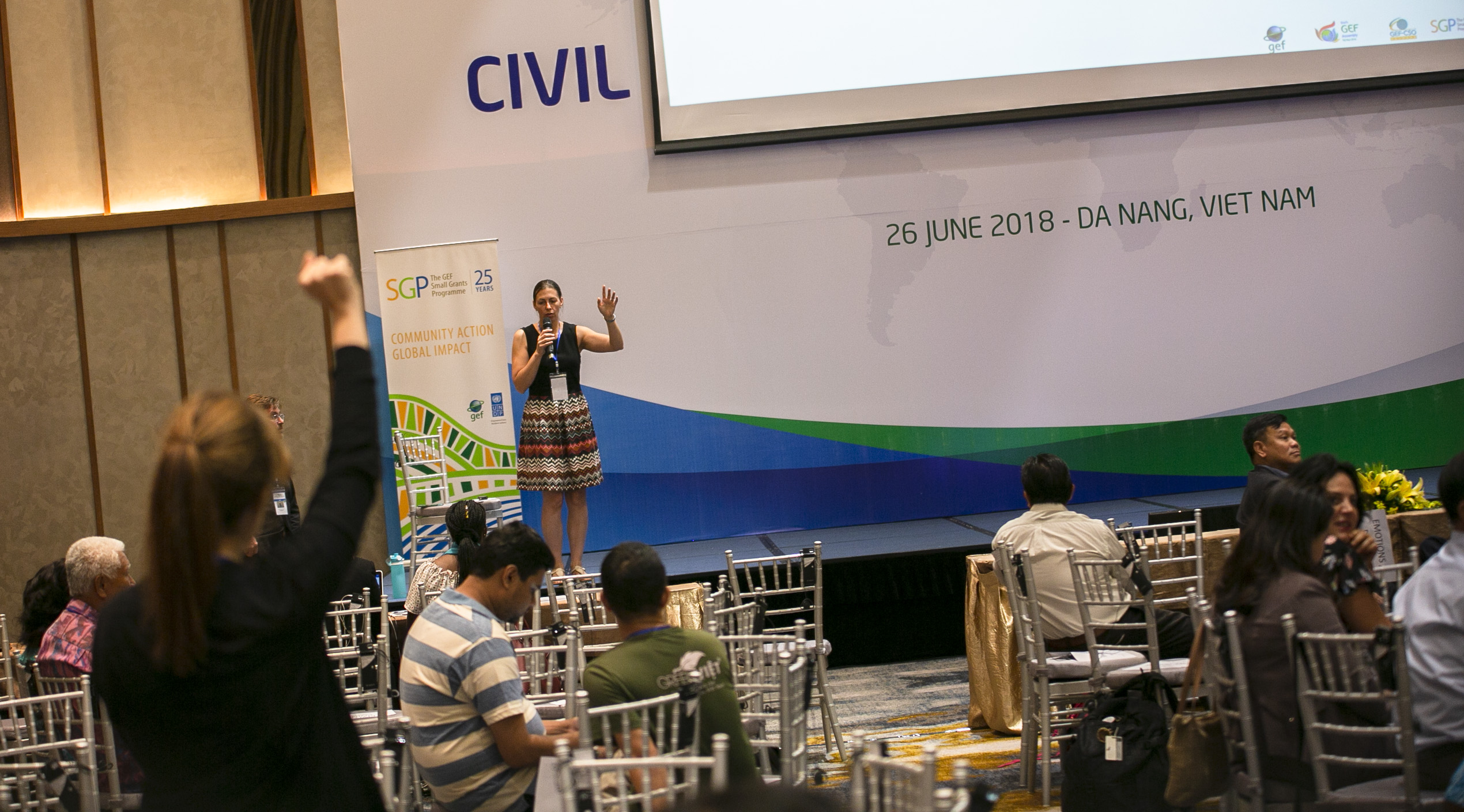

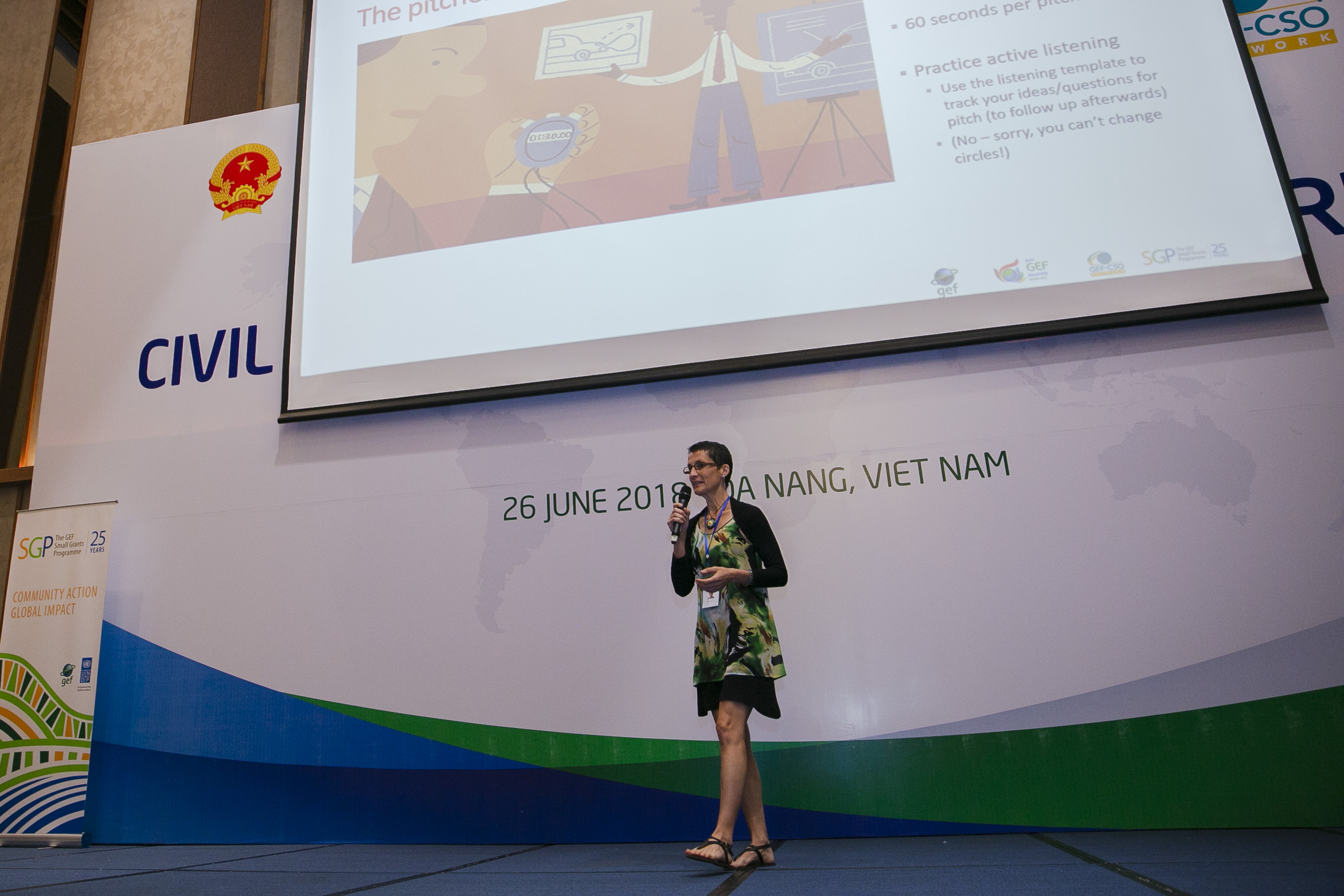
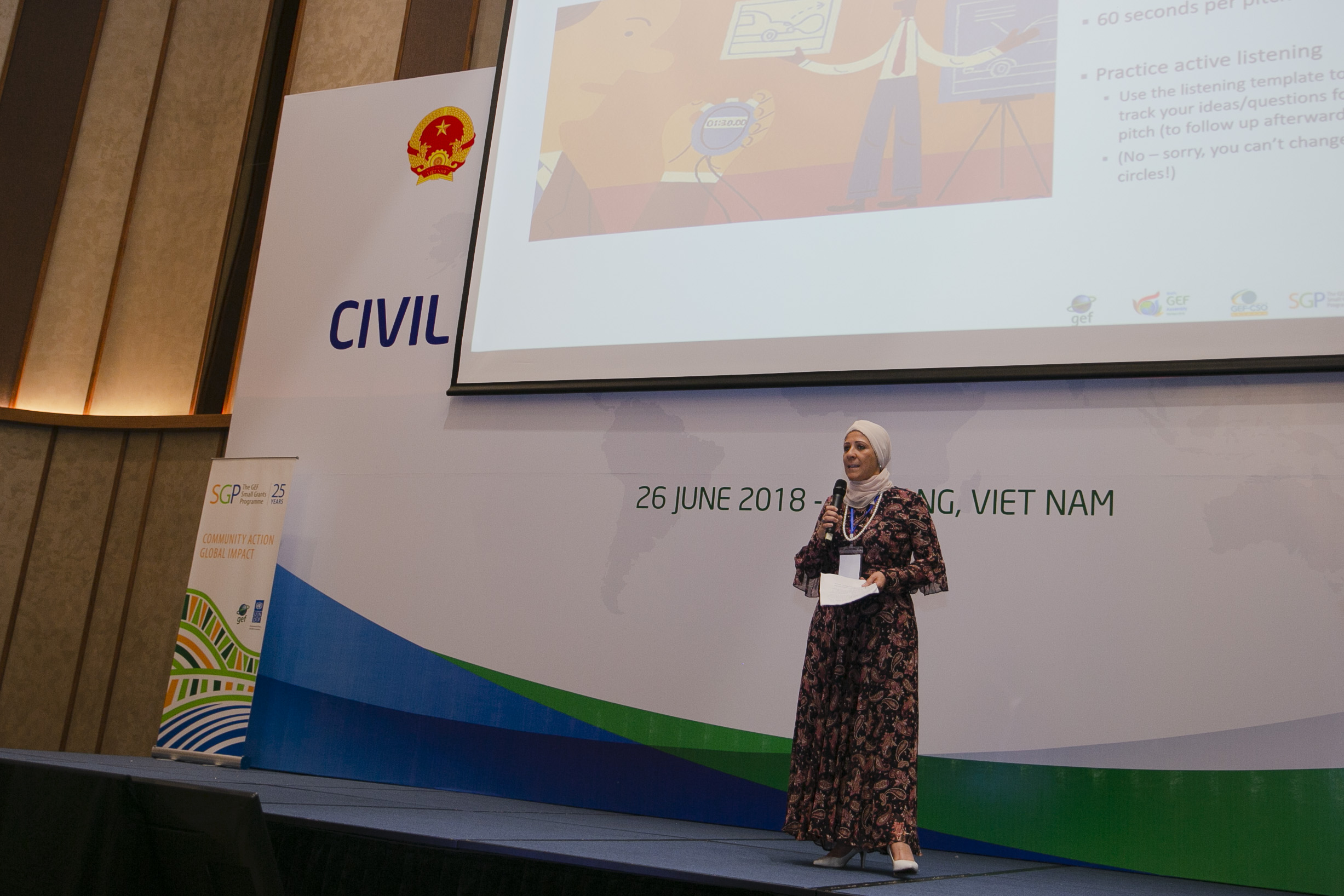
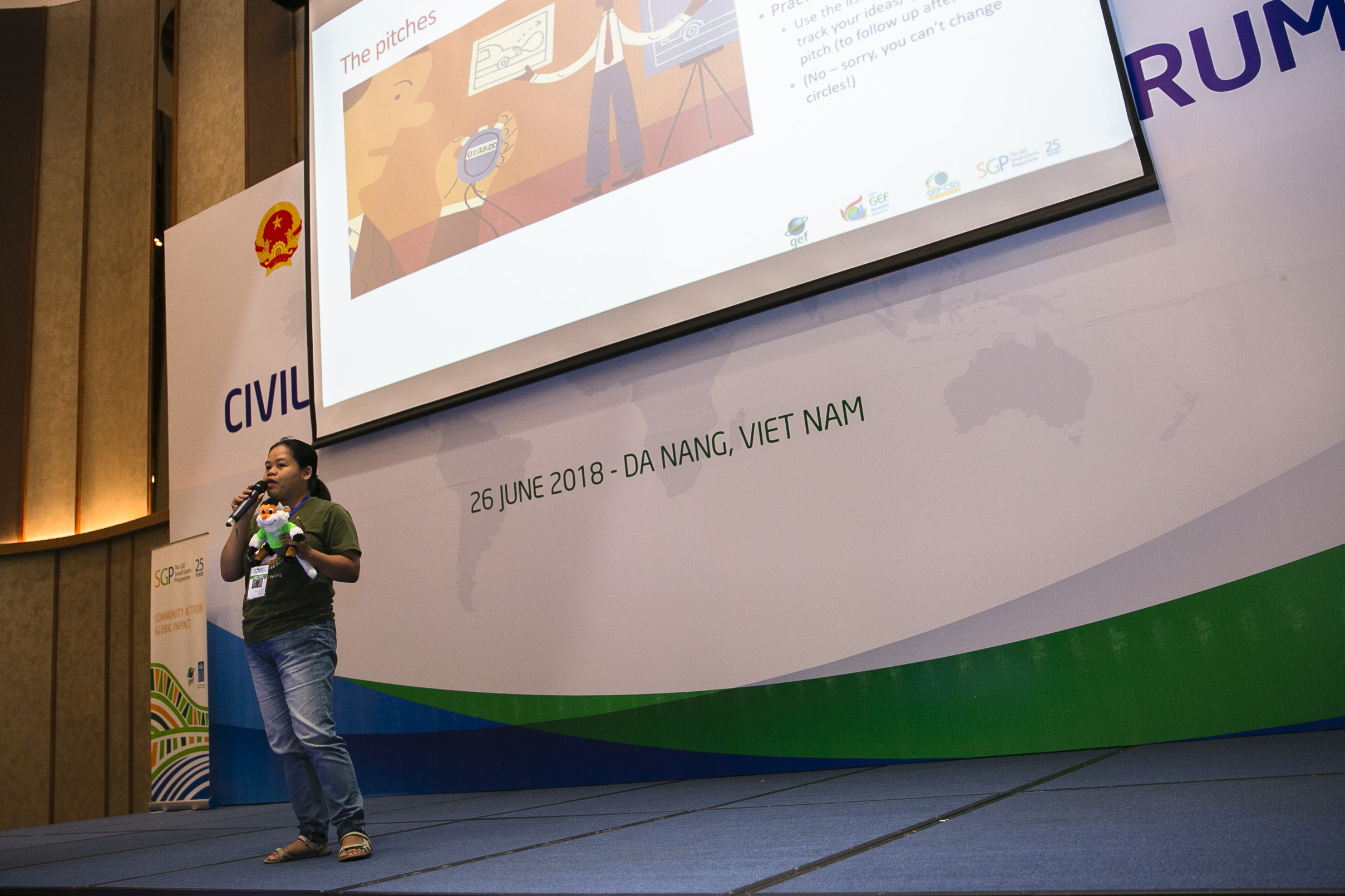
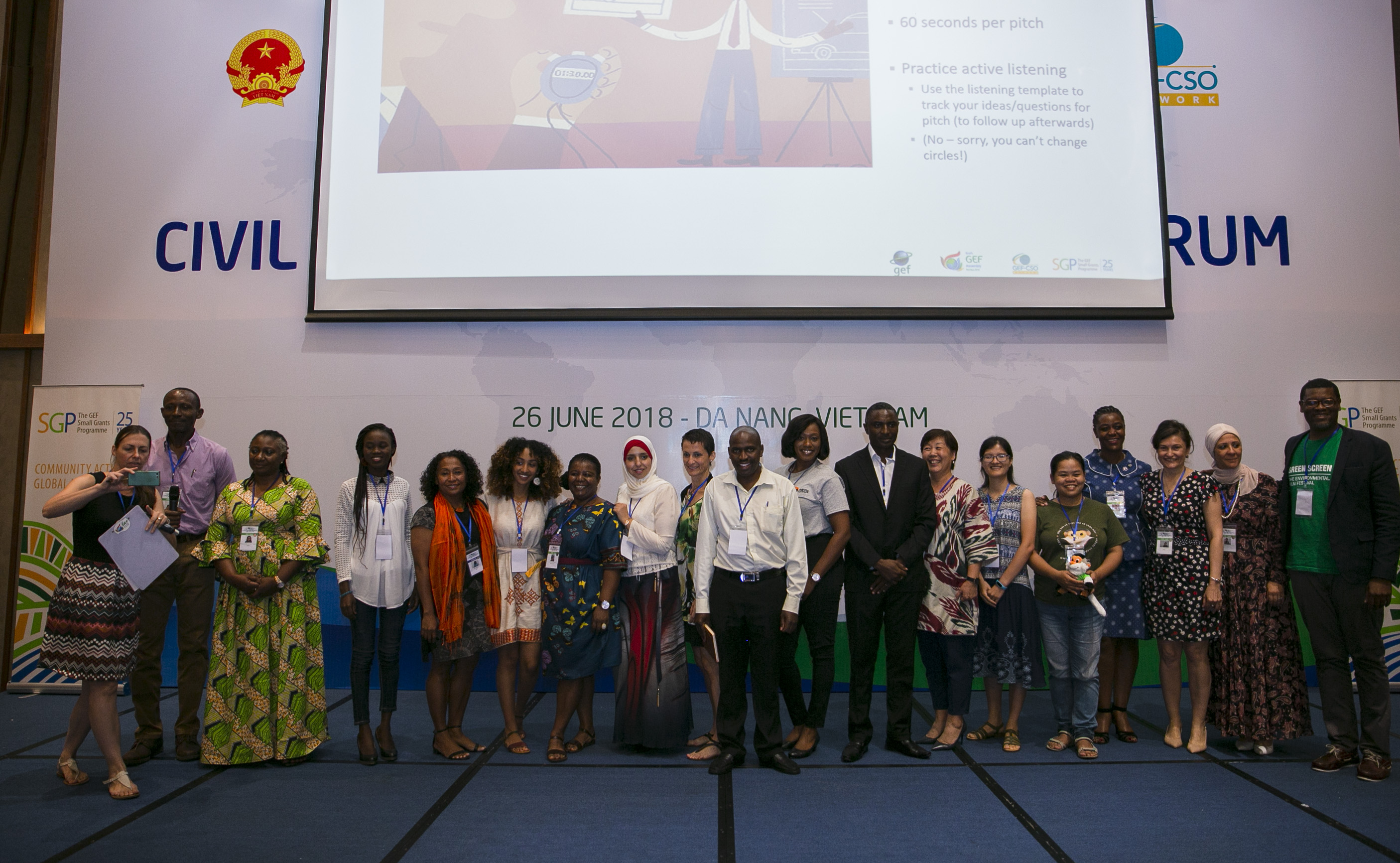
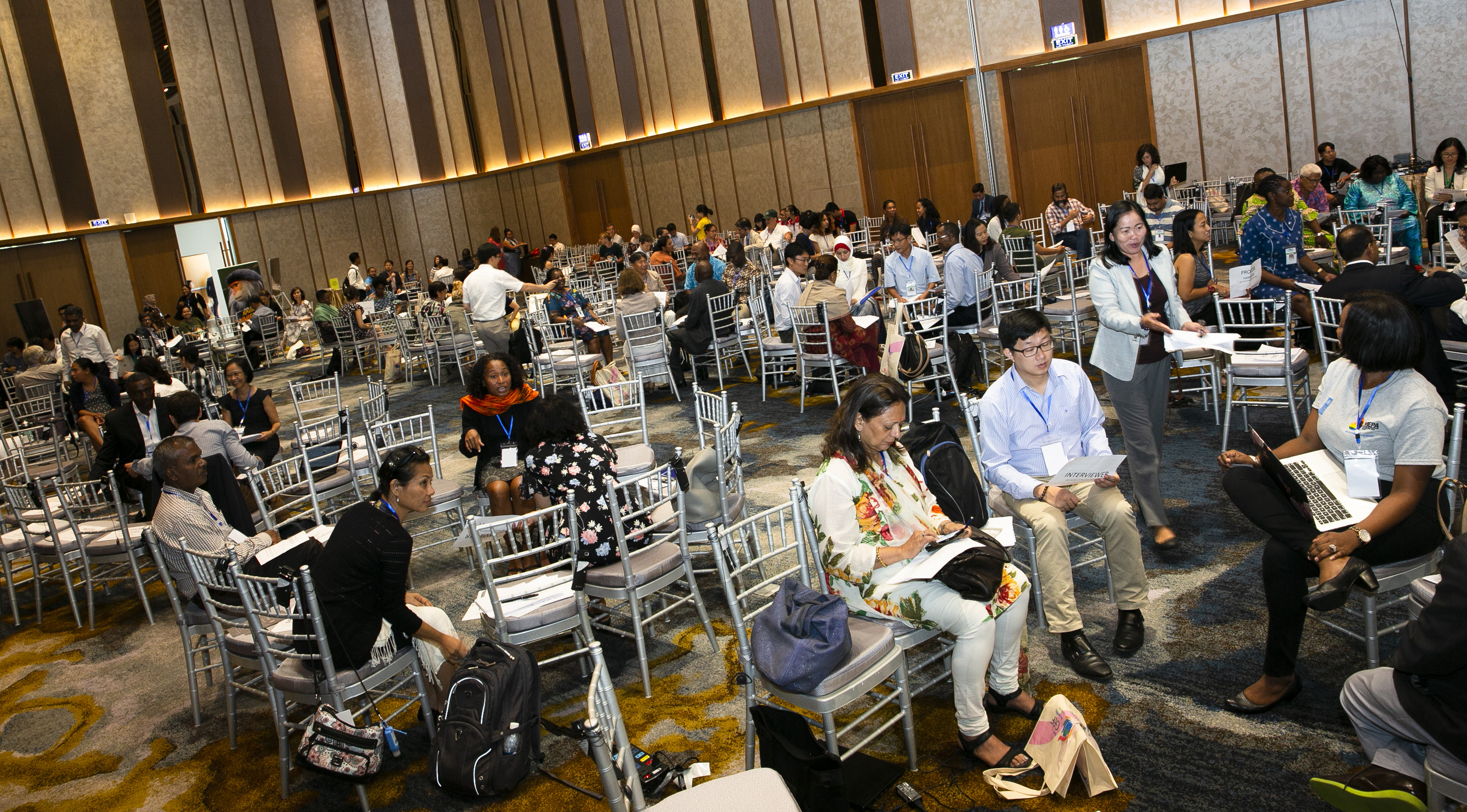
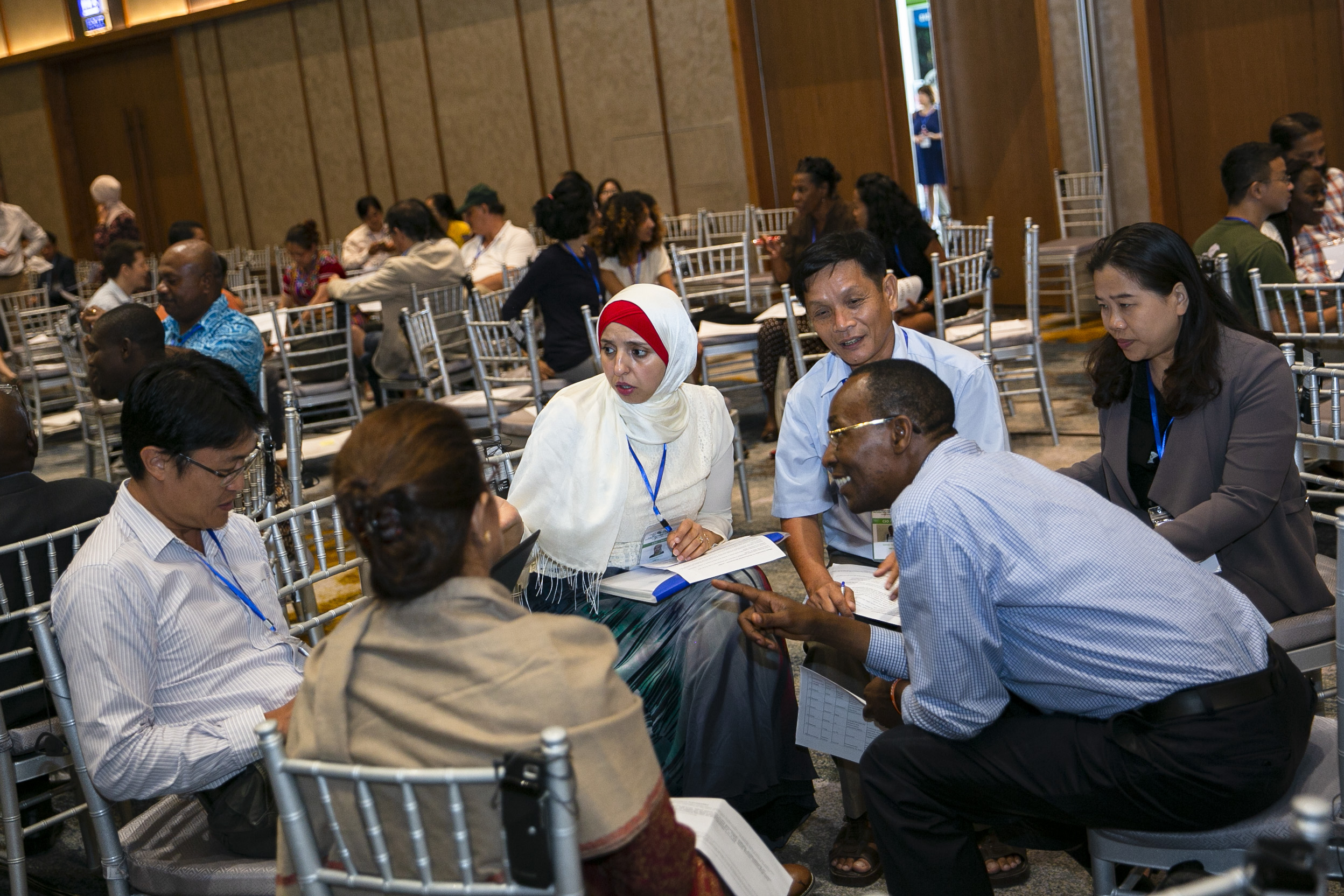
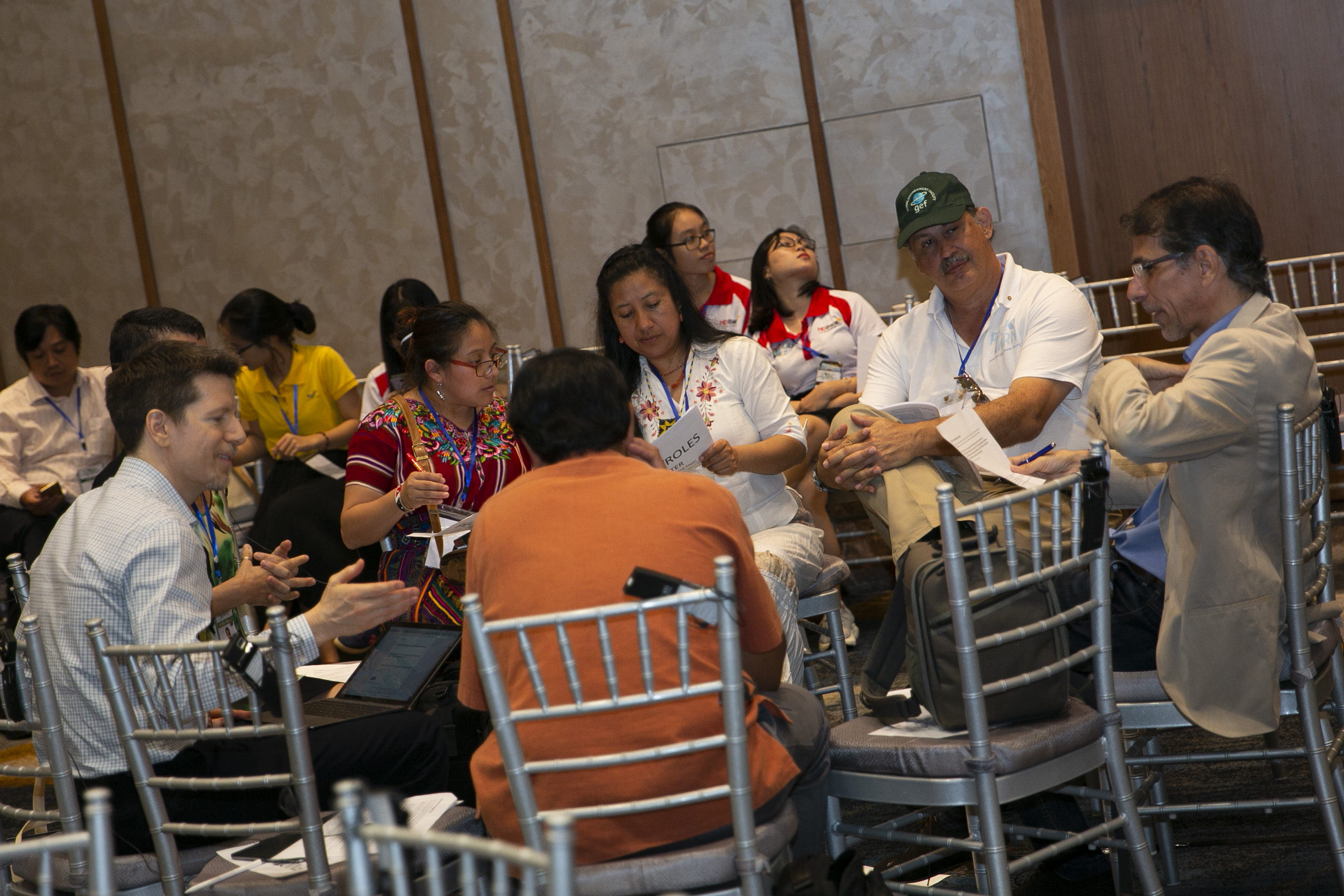
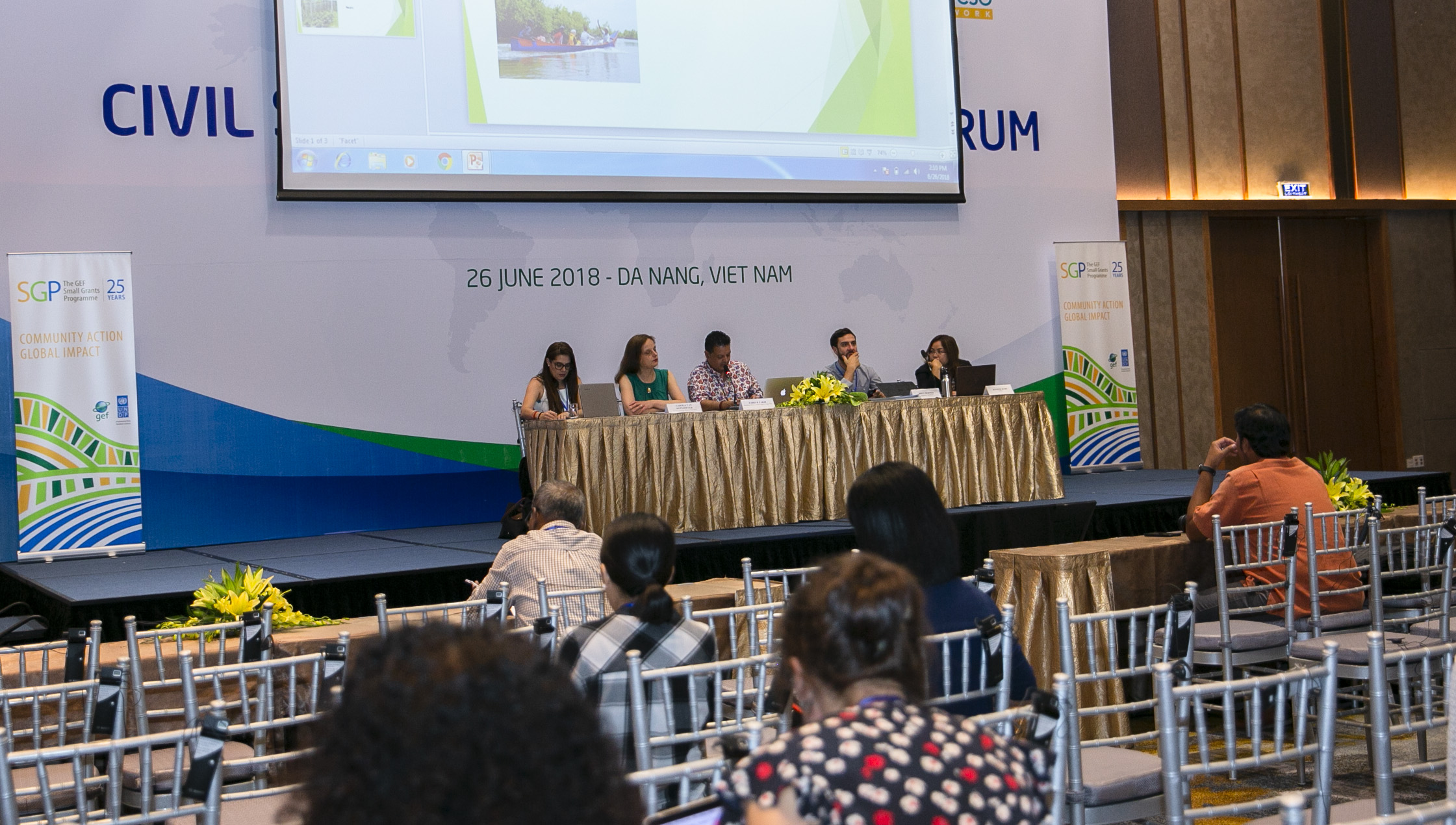
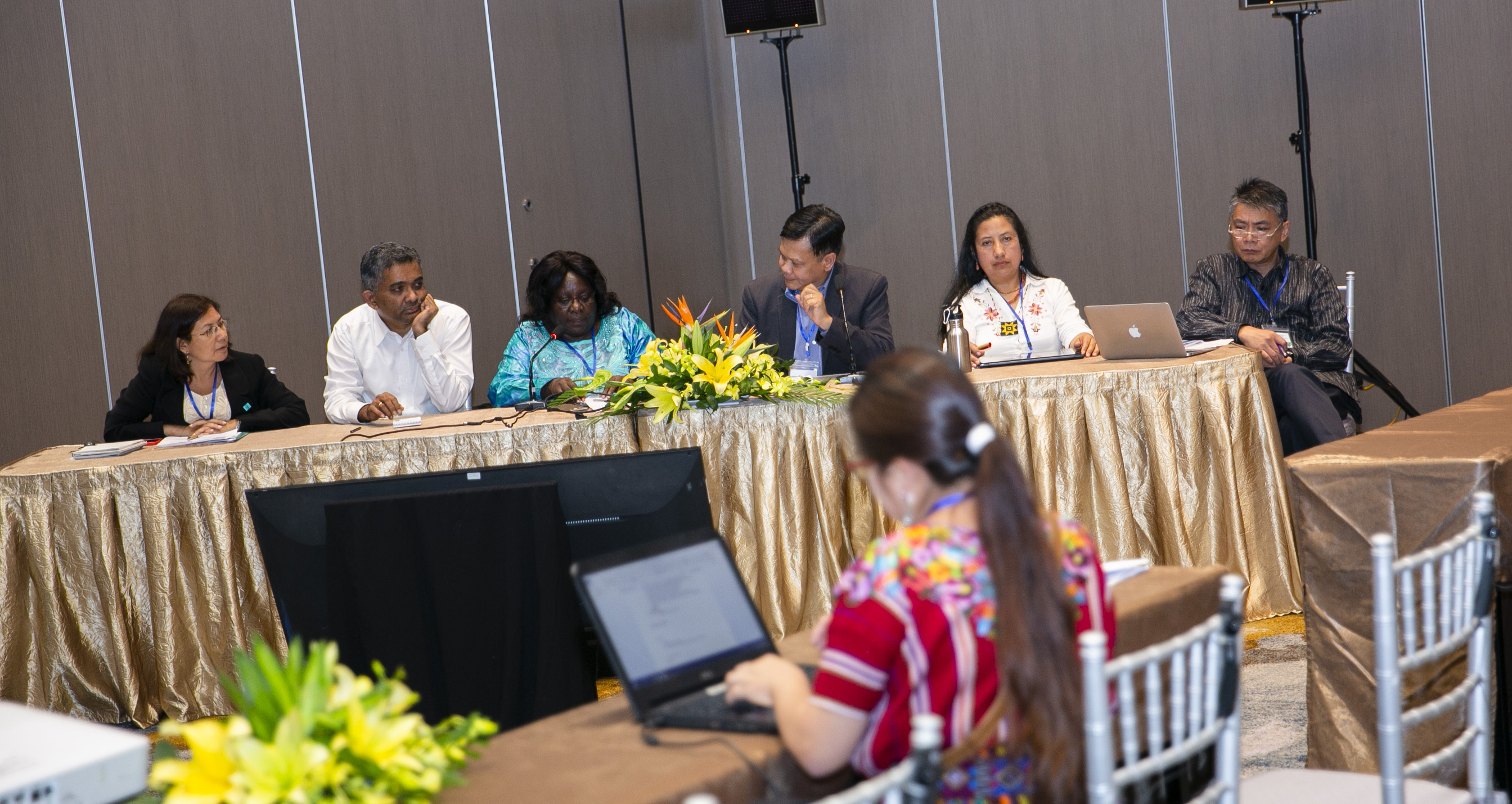
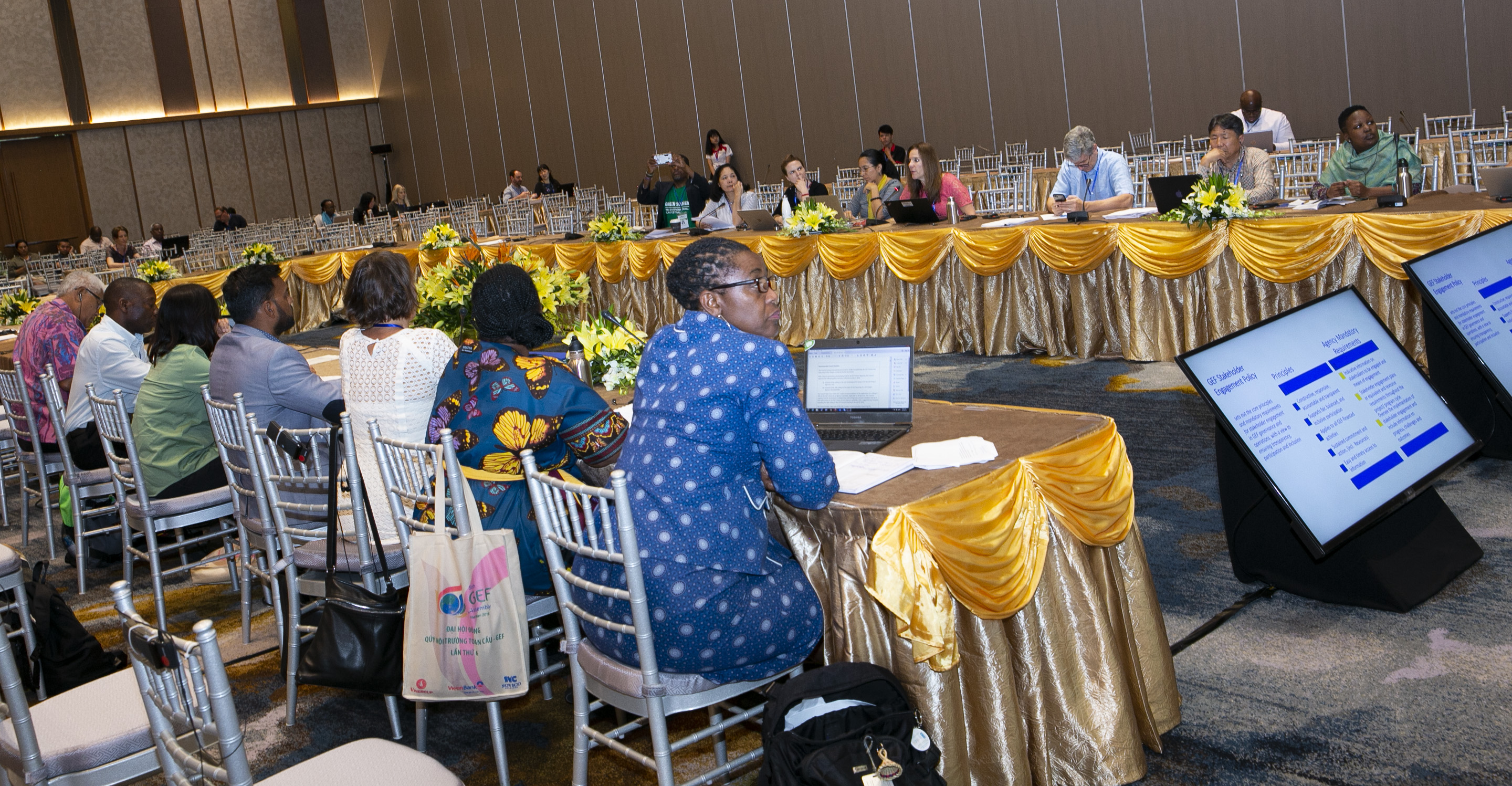

GEF Small Grants Programme - 25th Anniversary Reception
On Tuesday evening, the GEF Small Grants Programme (SGP) hosted a reception to celebrate its 25th Anniversary. The SGP provides small grants of up to US$50,000 and has funded more than 21,000 projects since 1992. Yoko Watanabe, Global Manager, SGP, welcomed participants to the reception by underscoring the innovative work of the SGP over the past 25 years.
Following a short video highlighting the contributions of local communities, Adriana Dinu, Executive Coordinator, UNDP Global Environmental Finance Unit, said that the SGP is an incubator of innovation that provides thousands of examples of local solutions to global challenges that can be scaled up.
Tran Hong Ha, Minister of Natural Resources and Environment, Viet Nam, delivered a keynote address, thanking SGP for effectively funding programmes that support civil society in implementing activities related to environmental protection and sustainable livelihoods. He expressed hope for continued cooperation between the SGP and Viet Nam.
Urging the SGP to create systemic change, Andrew Steer, President and CEO, World Resources Institute, praised the SGP for being transformative and hugely successful at the project level and looked forward to the next 25 years.
Lucy Mulenkei, Chair, Indigenous Peoples Advisory Group of the GEF, said that most beneficiaries of the SGP are indigenous peoples and local communities and that the SGP should be scaled up to ensure additional project funding.
Lyonpo Damcho Dorji, Minister of Foreign Affairs, Bhutan, said that the SGP demonstrates there can be a balance between human needs and environmental imperatives. Naoko Ishii, GEF CEO and Chairperson, said that the GEF Council strongly supports the SGP, highlighting the importance of recognizing the power of the local commons to transform the global commons. The reception also included the inauguration of a commemorative stamp and an anniversary photobook.
The reception concluded with a dance and music performance by the Co Tu Indigenous Peoples of Da Nang.
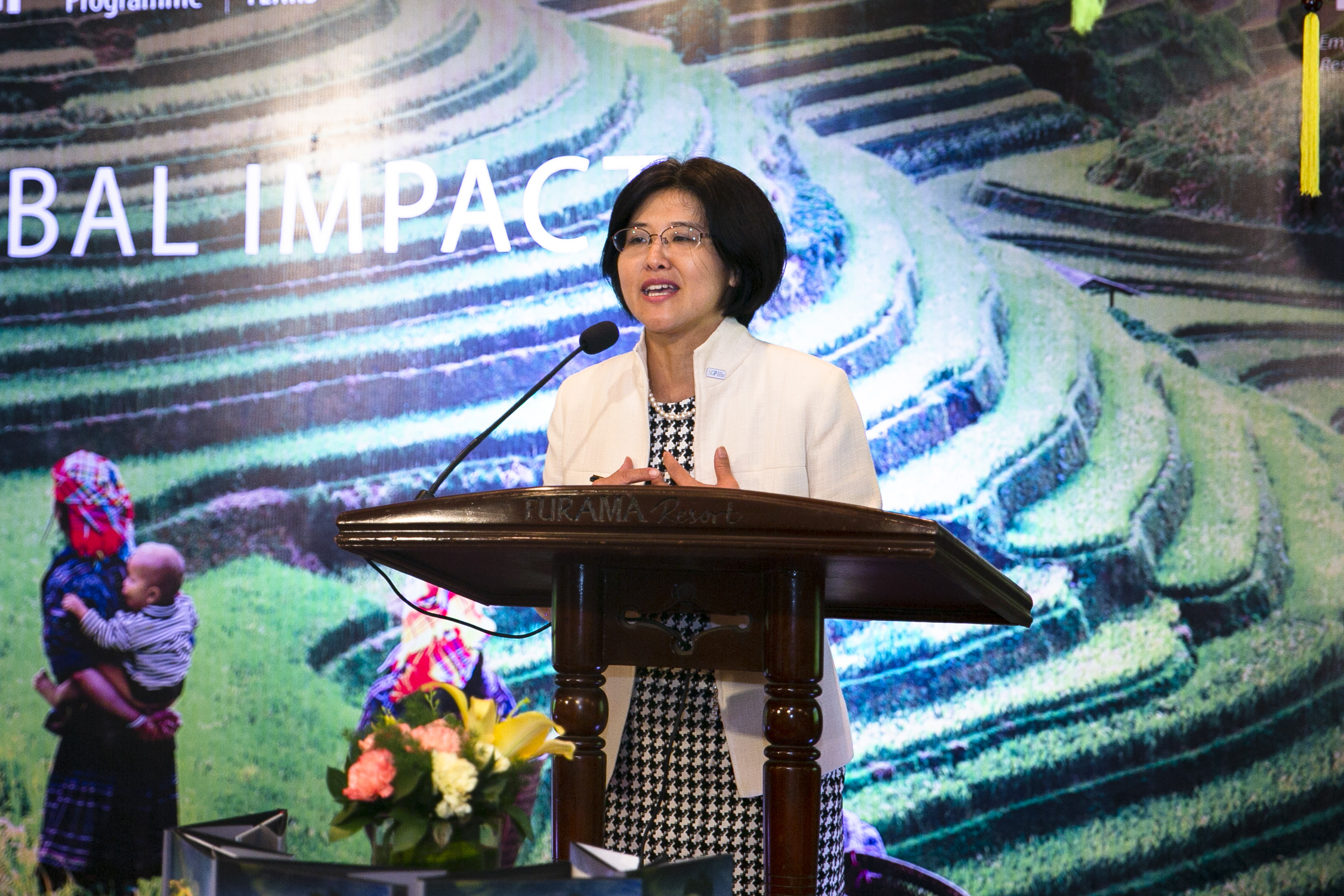
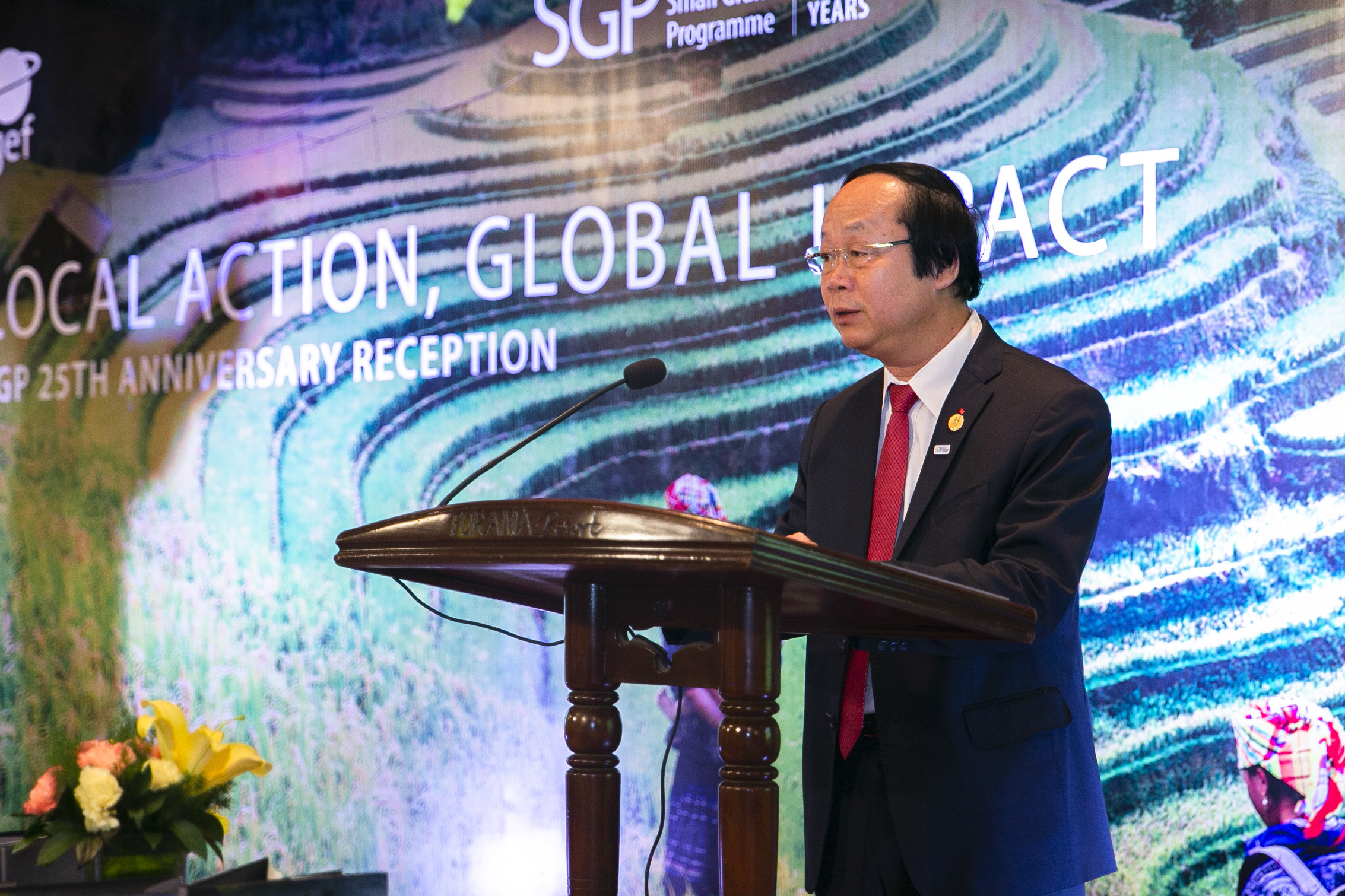
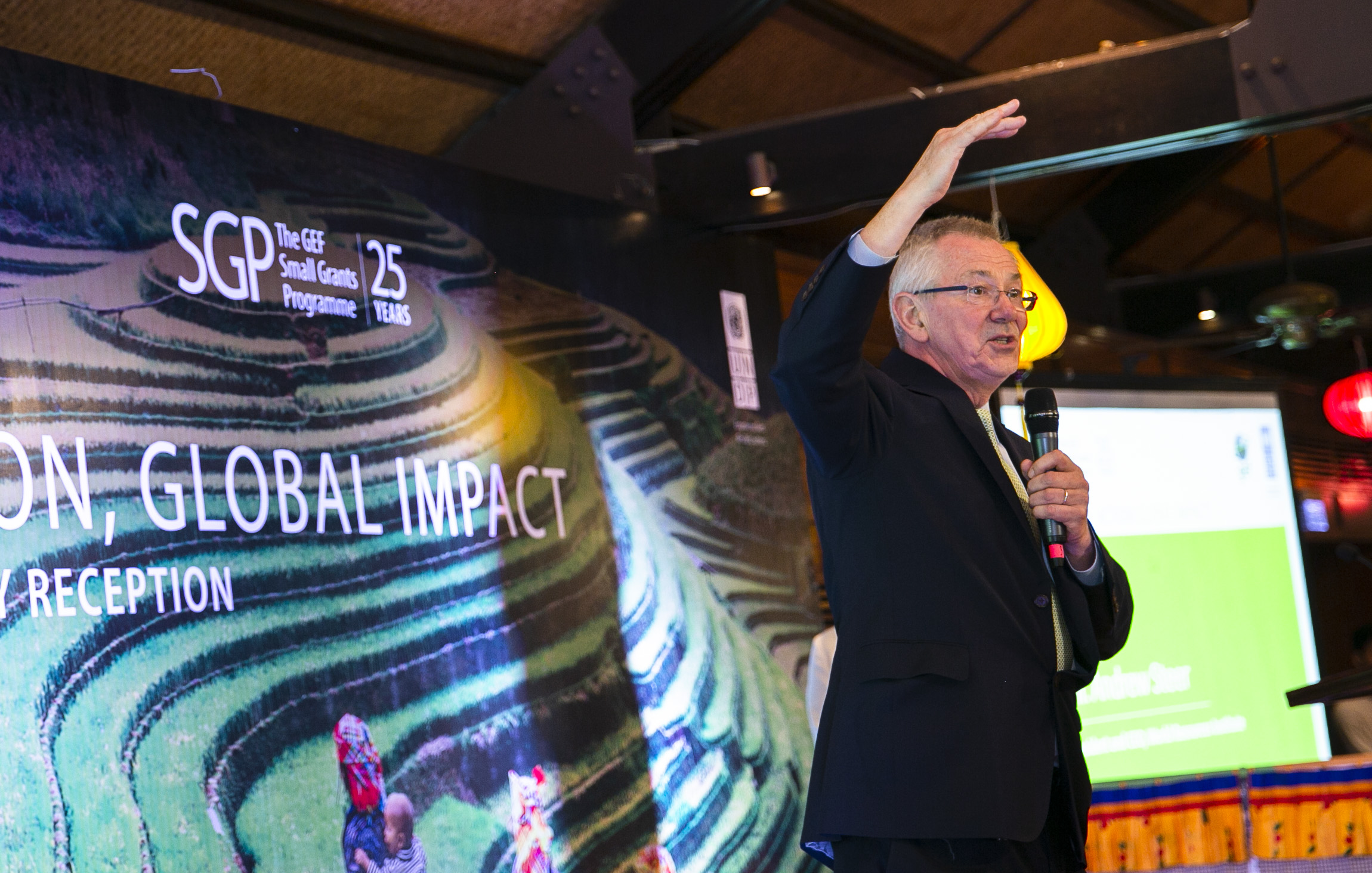
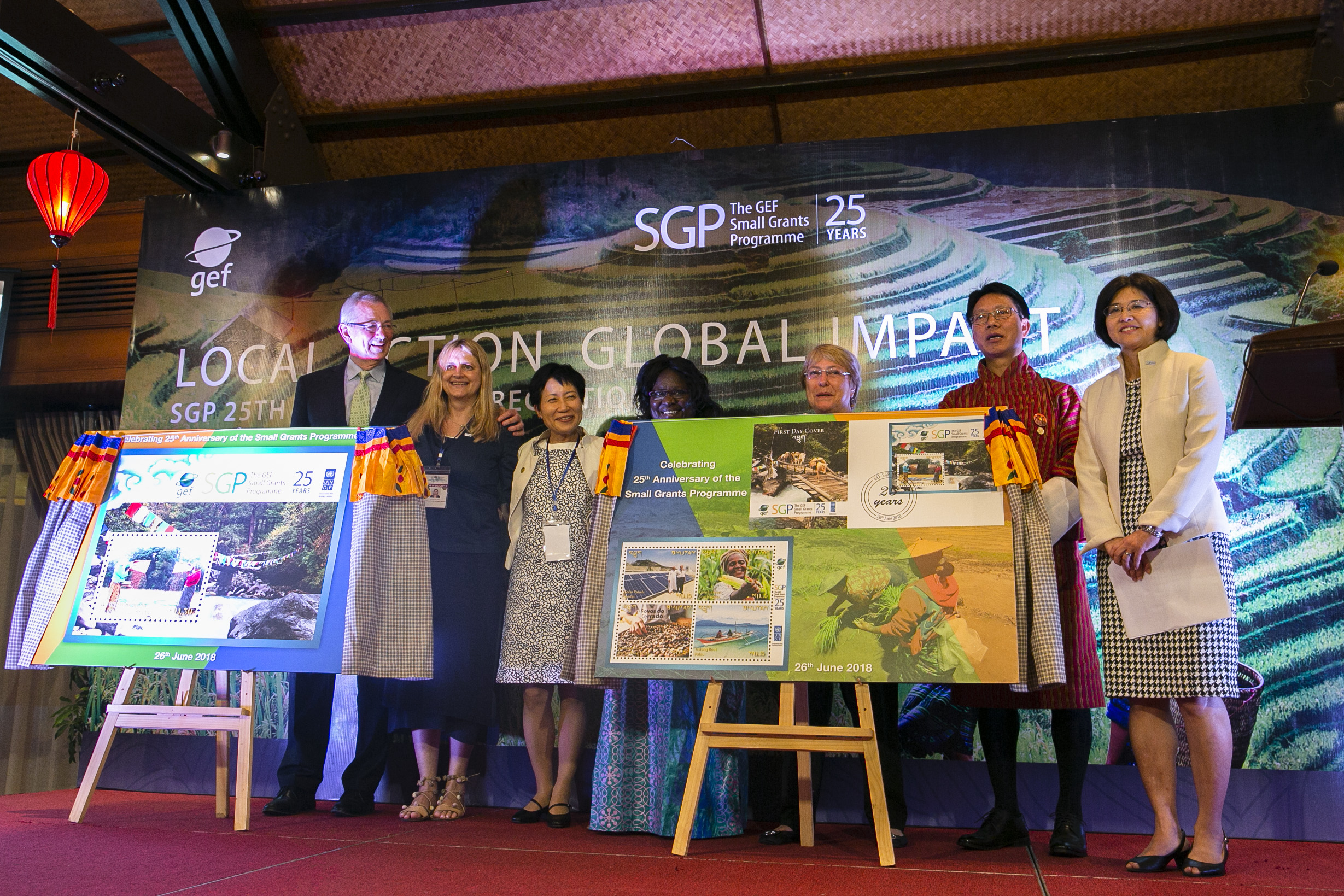
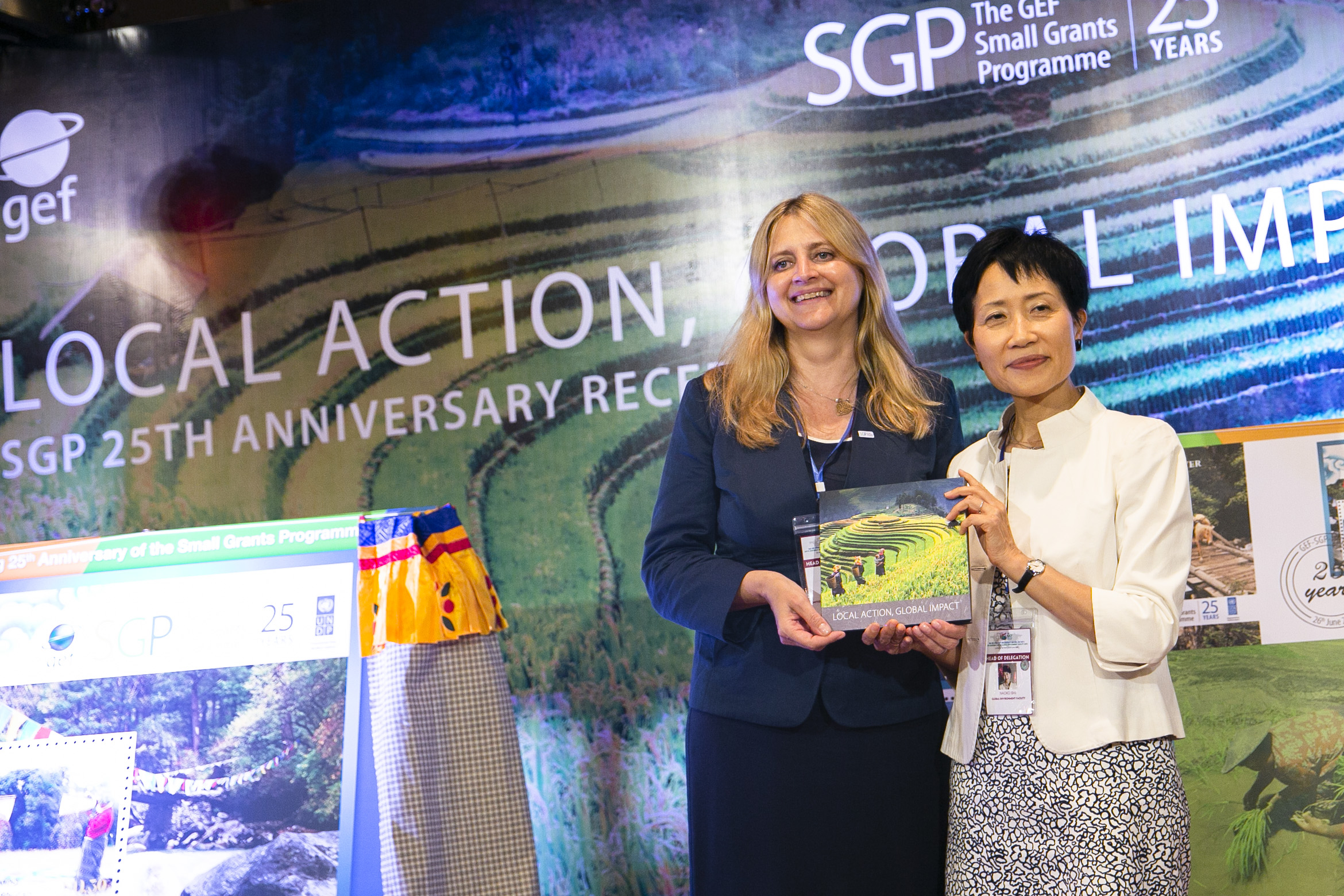
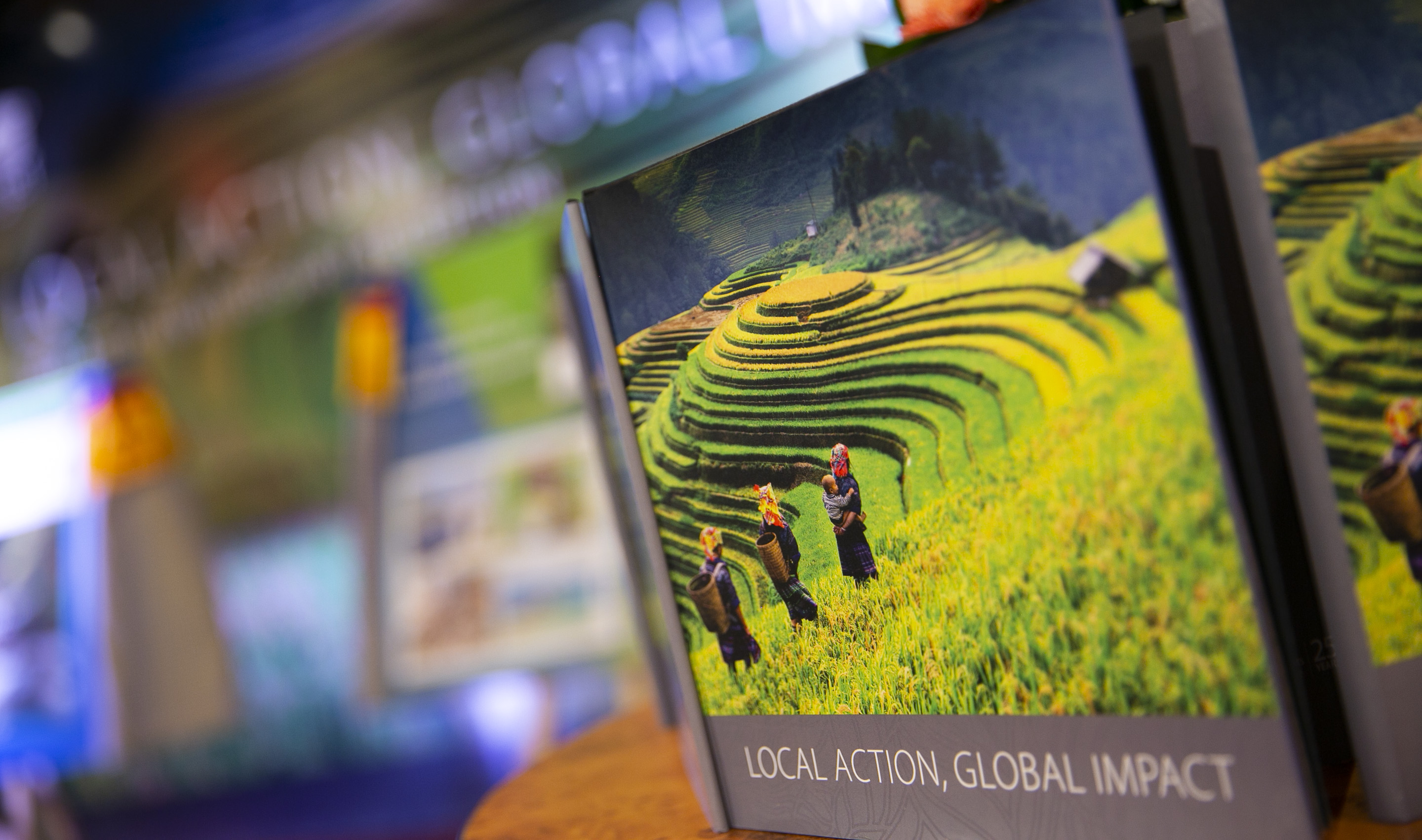
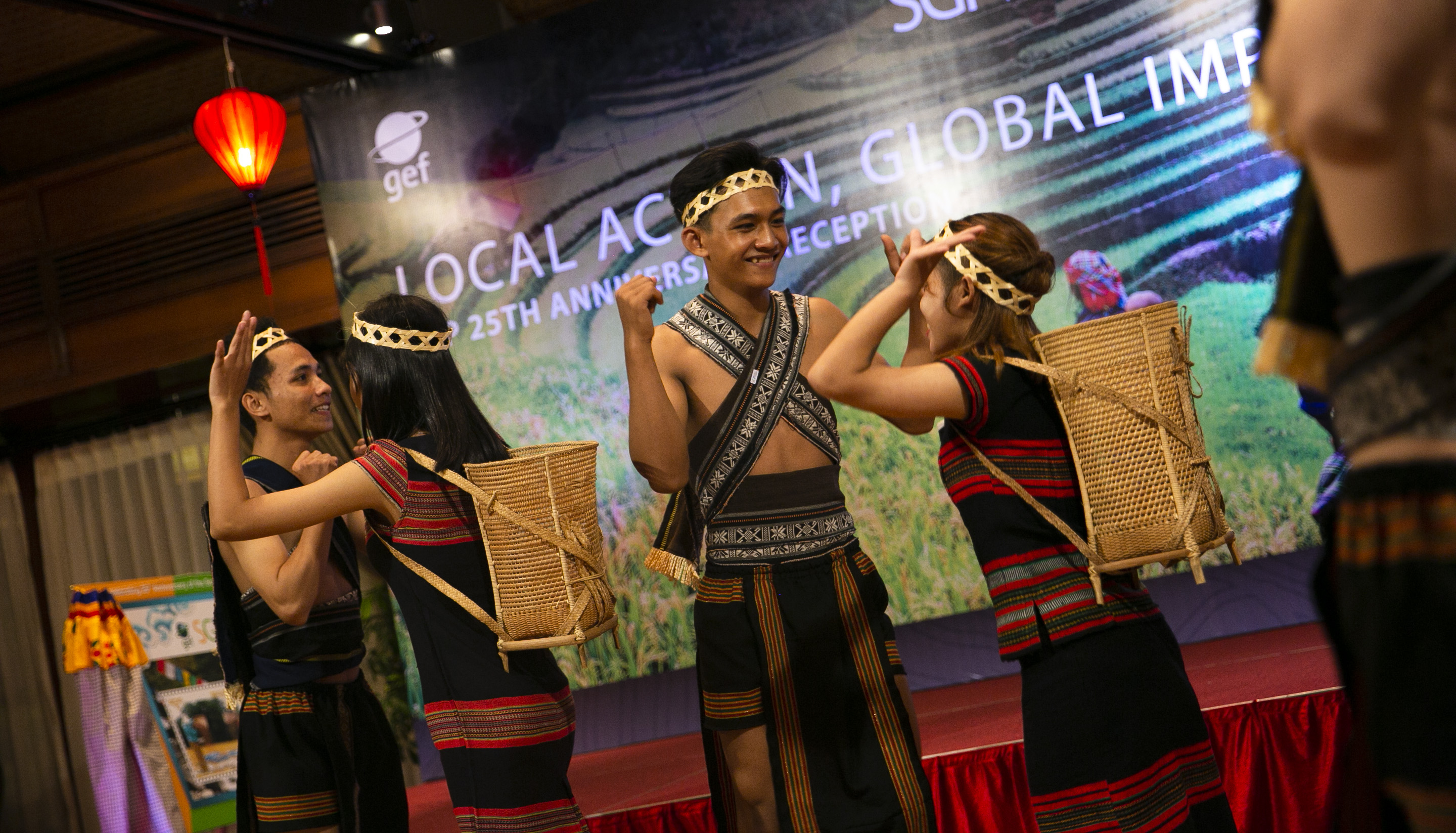
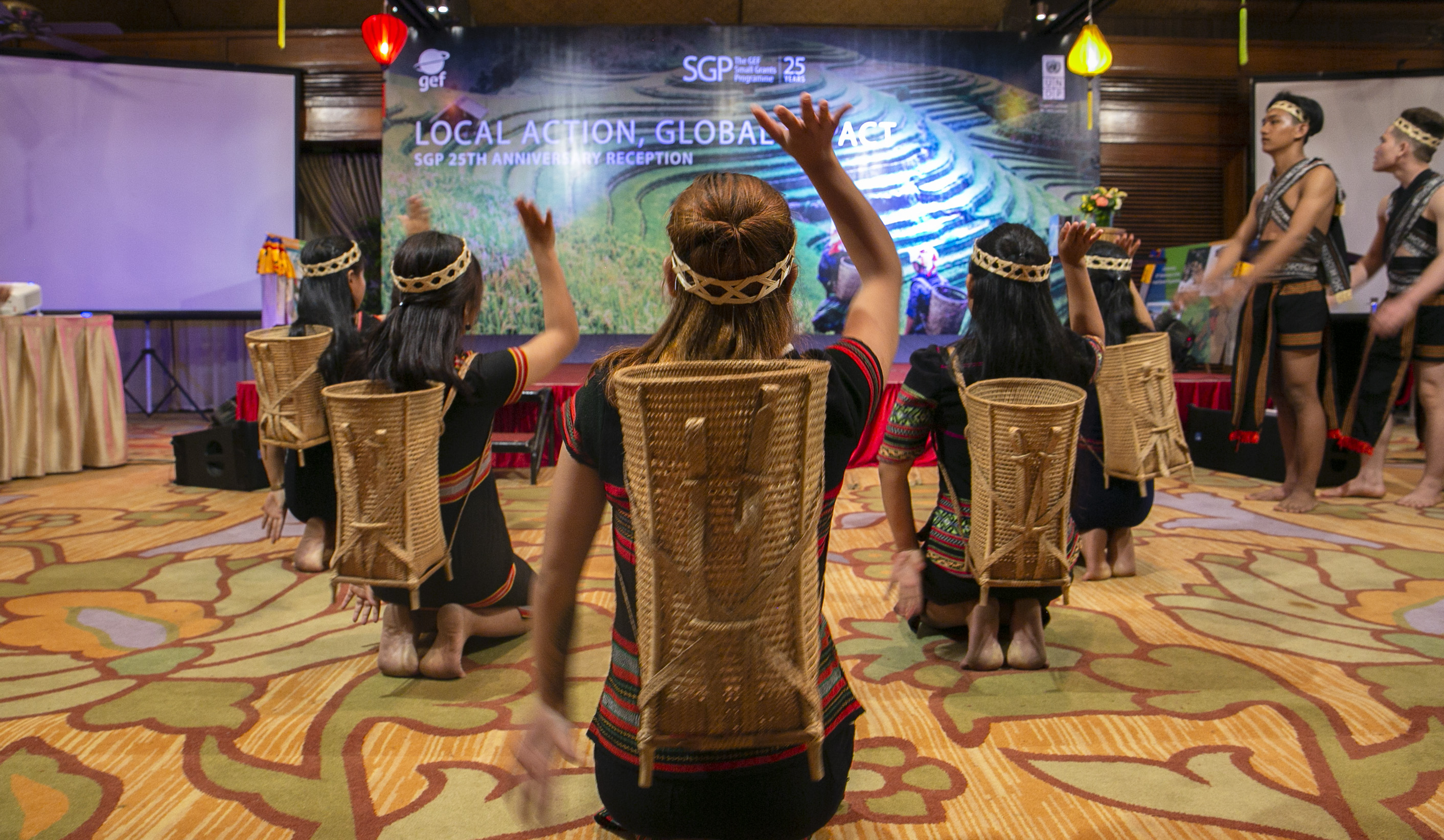
Around the Venue
